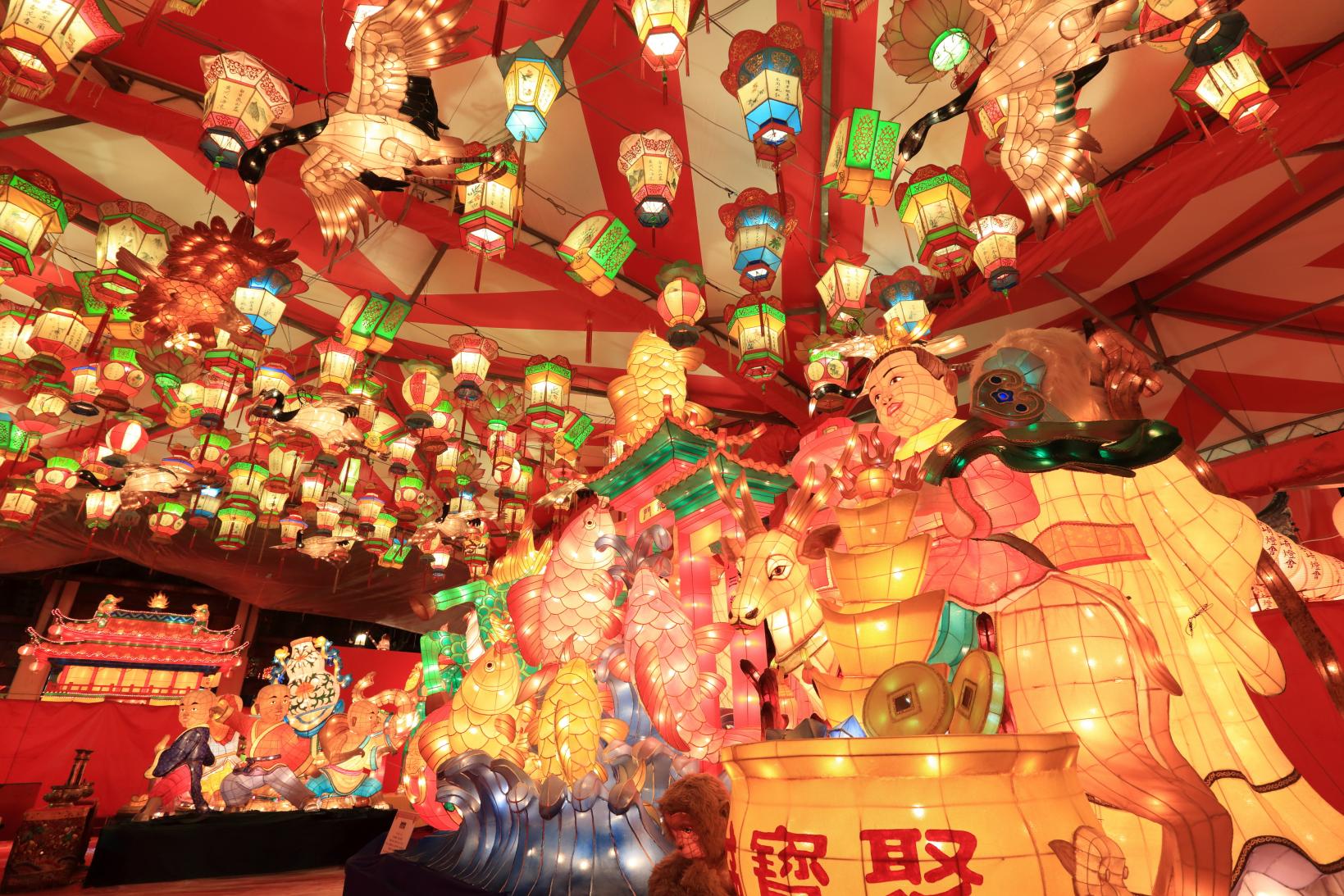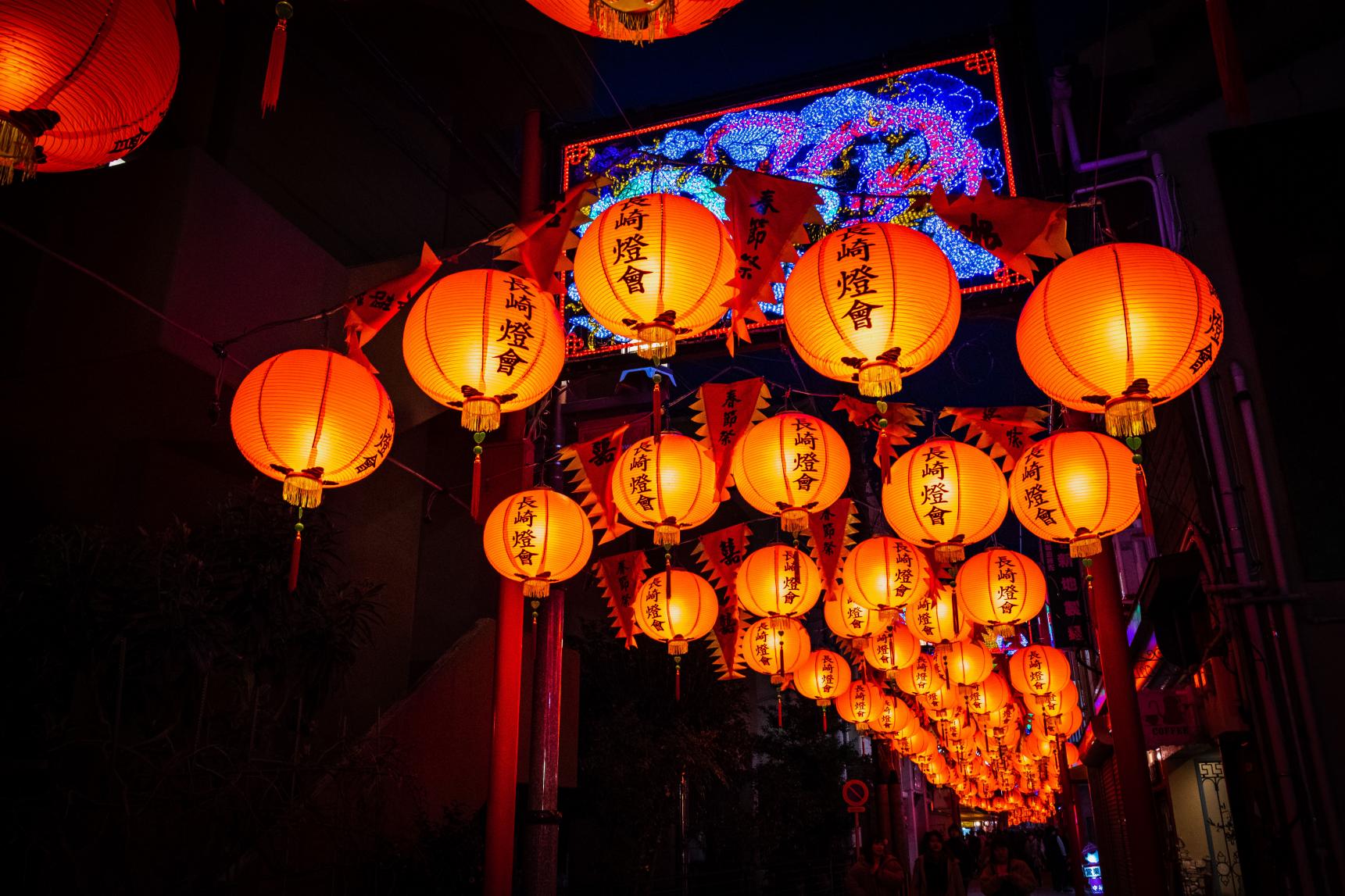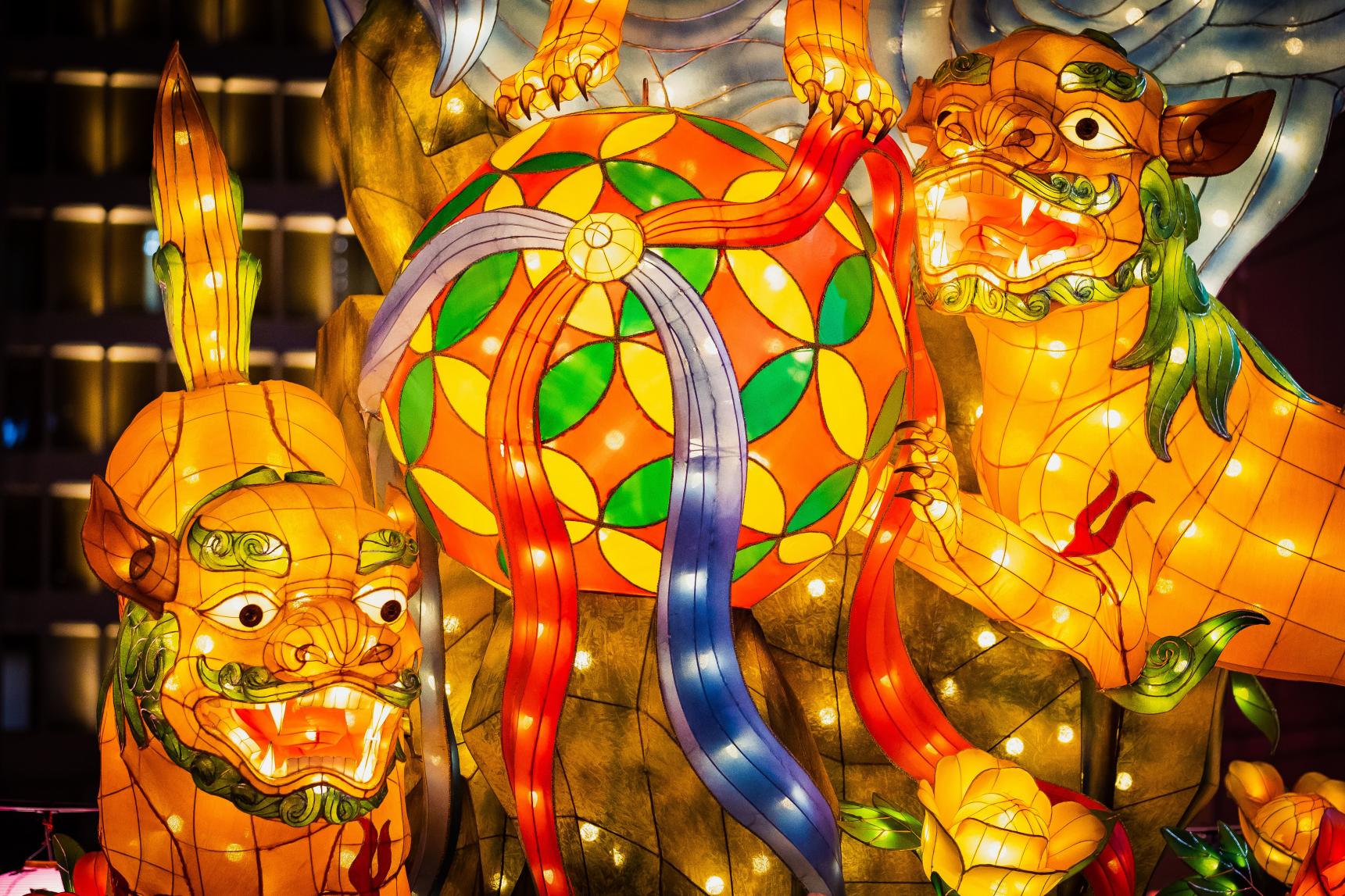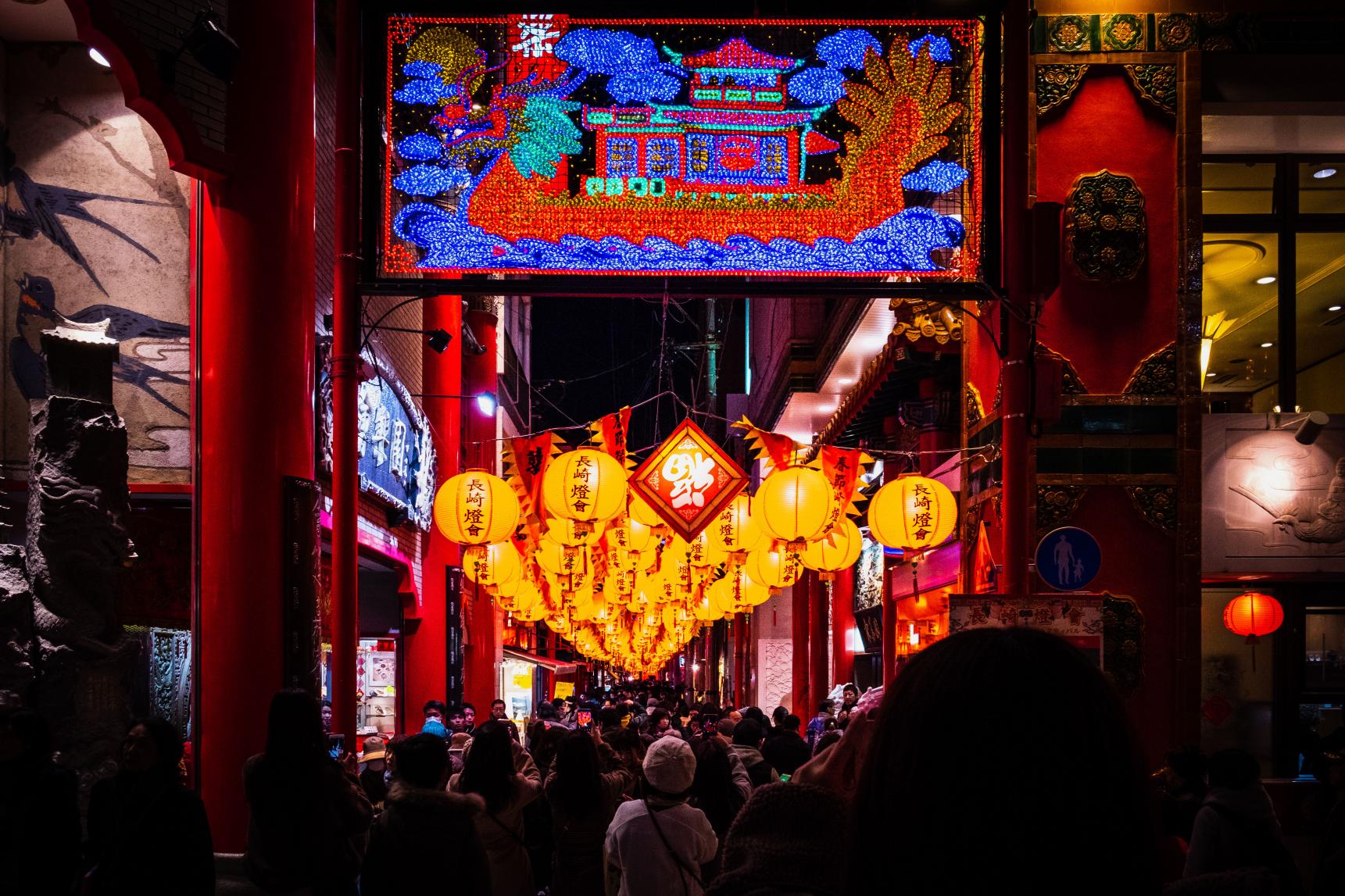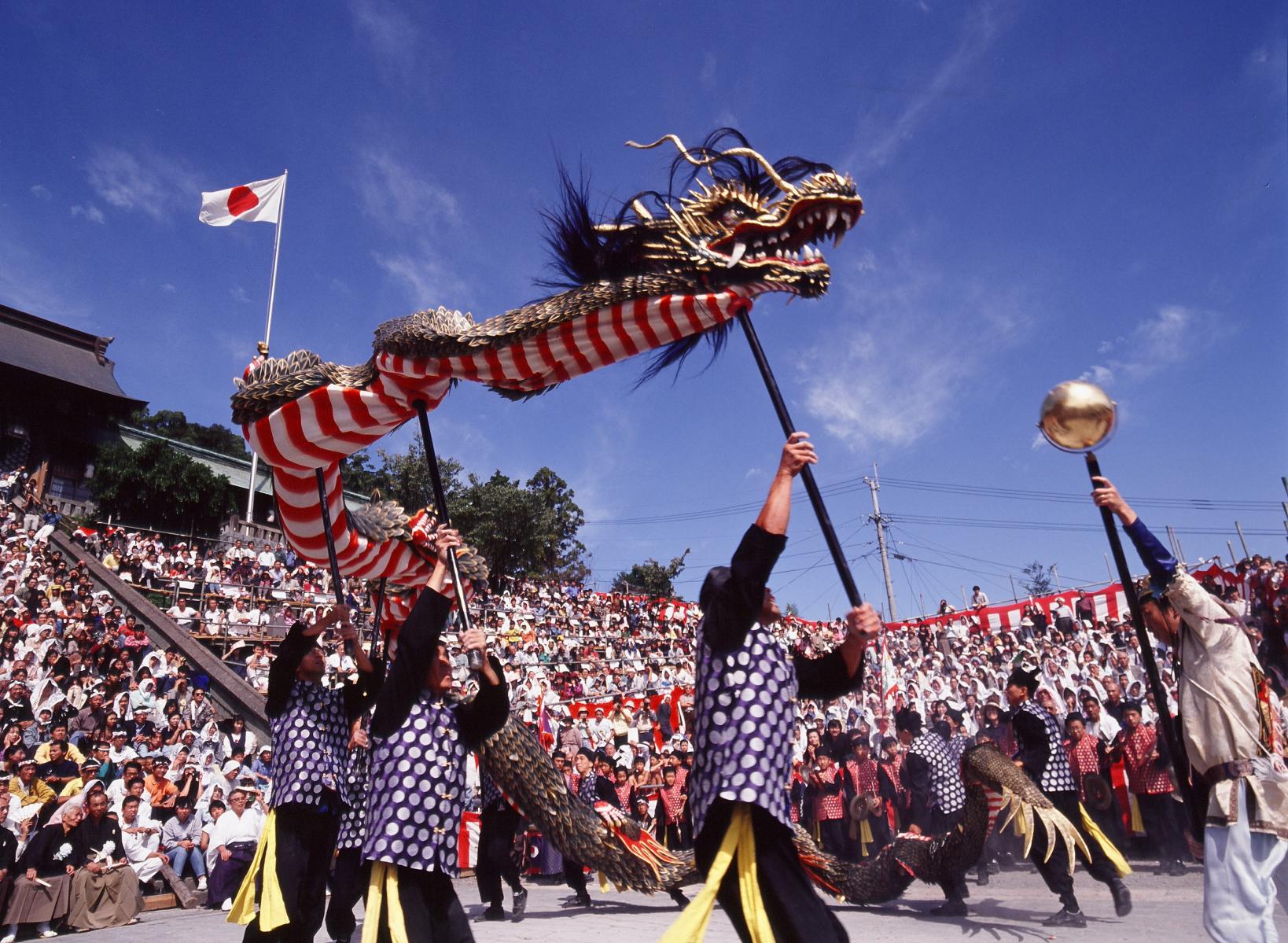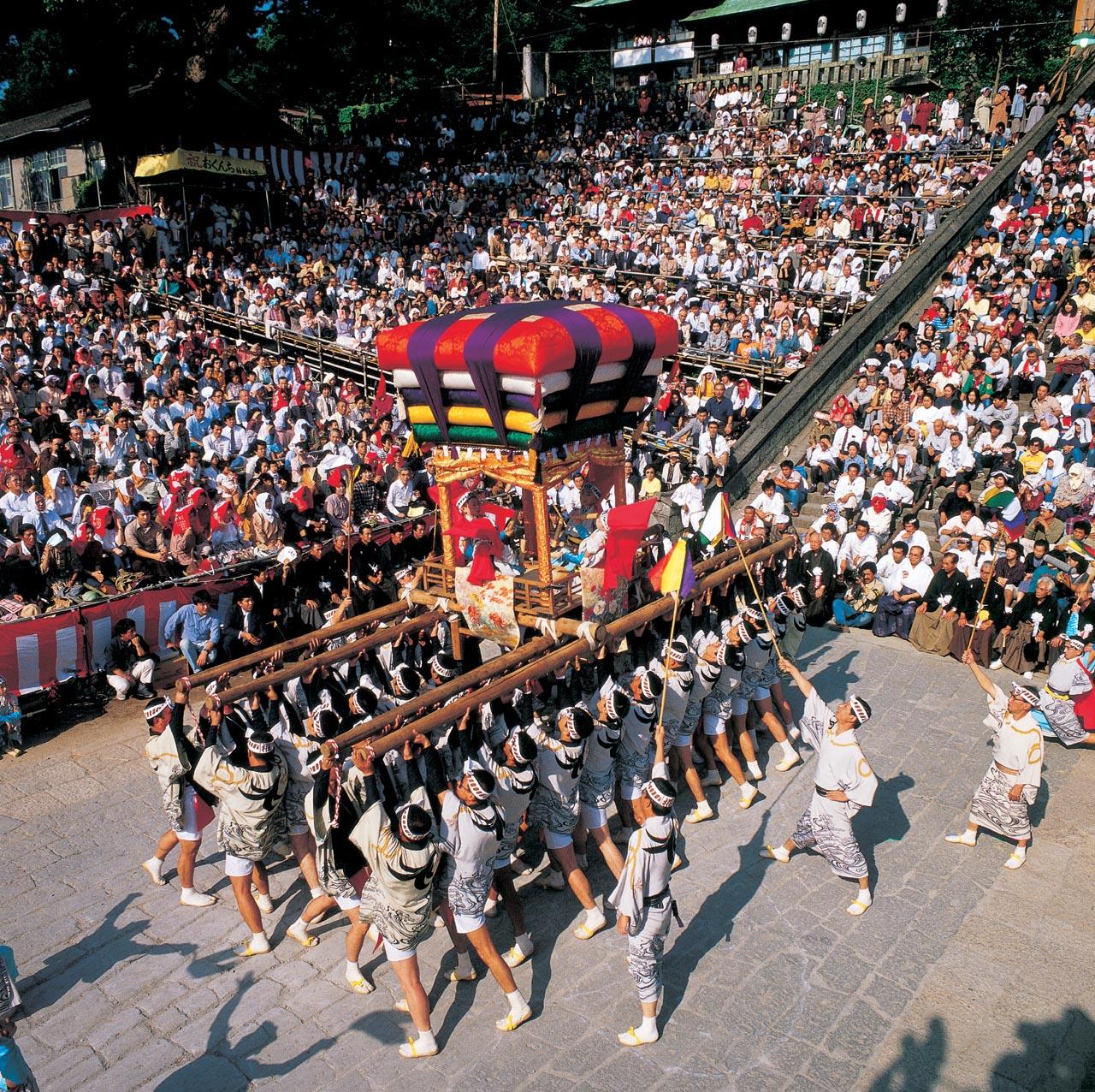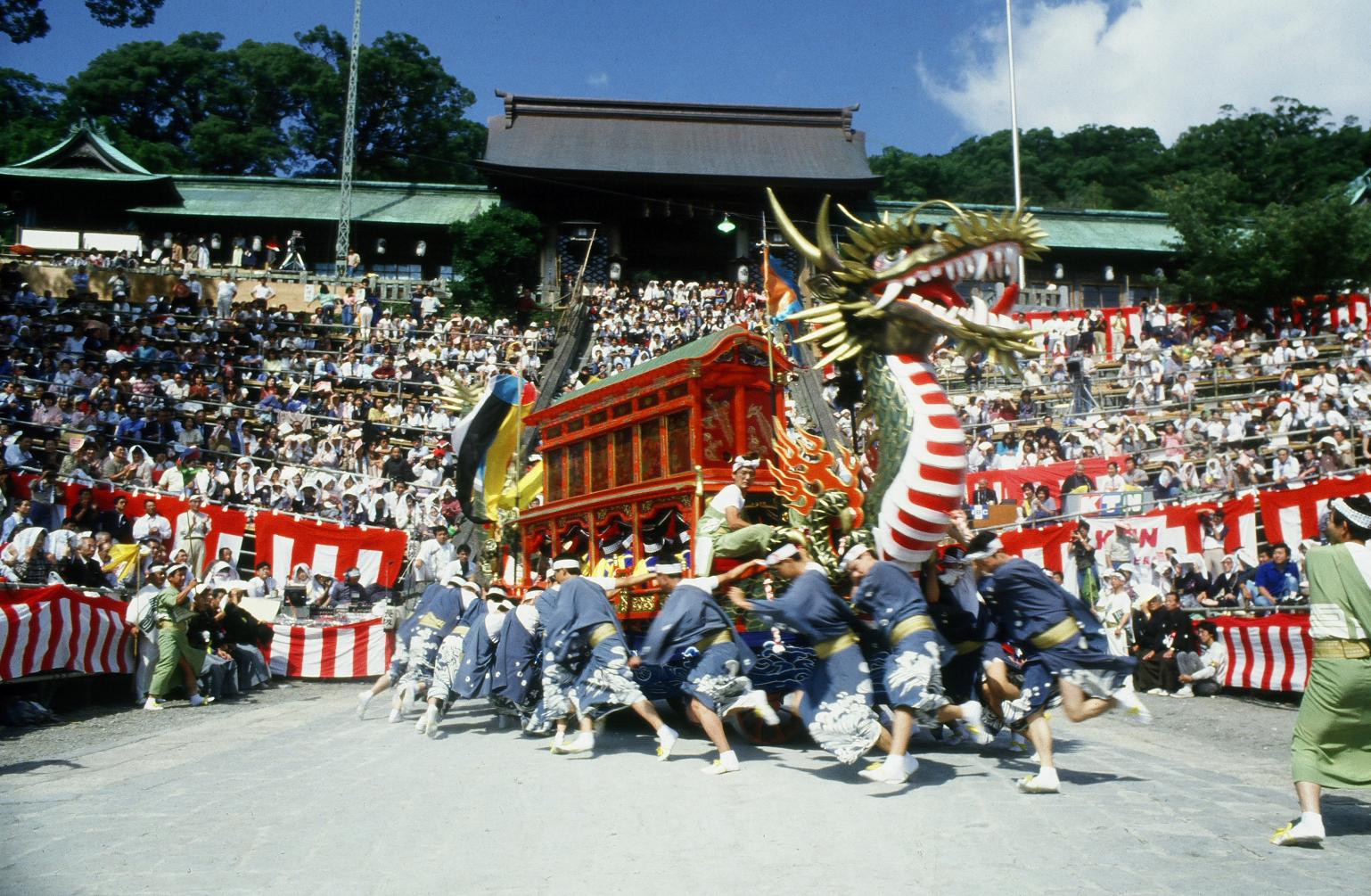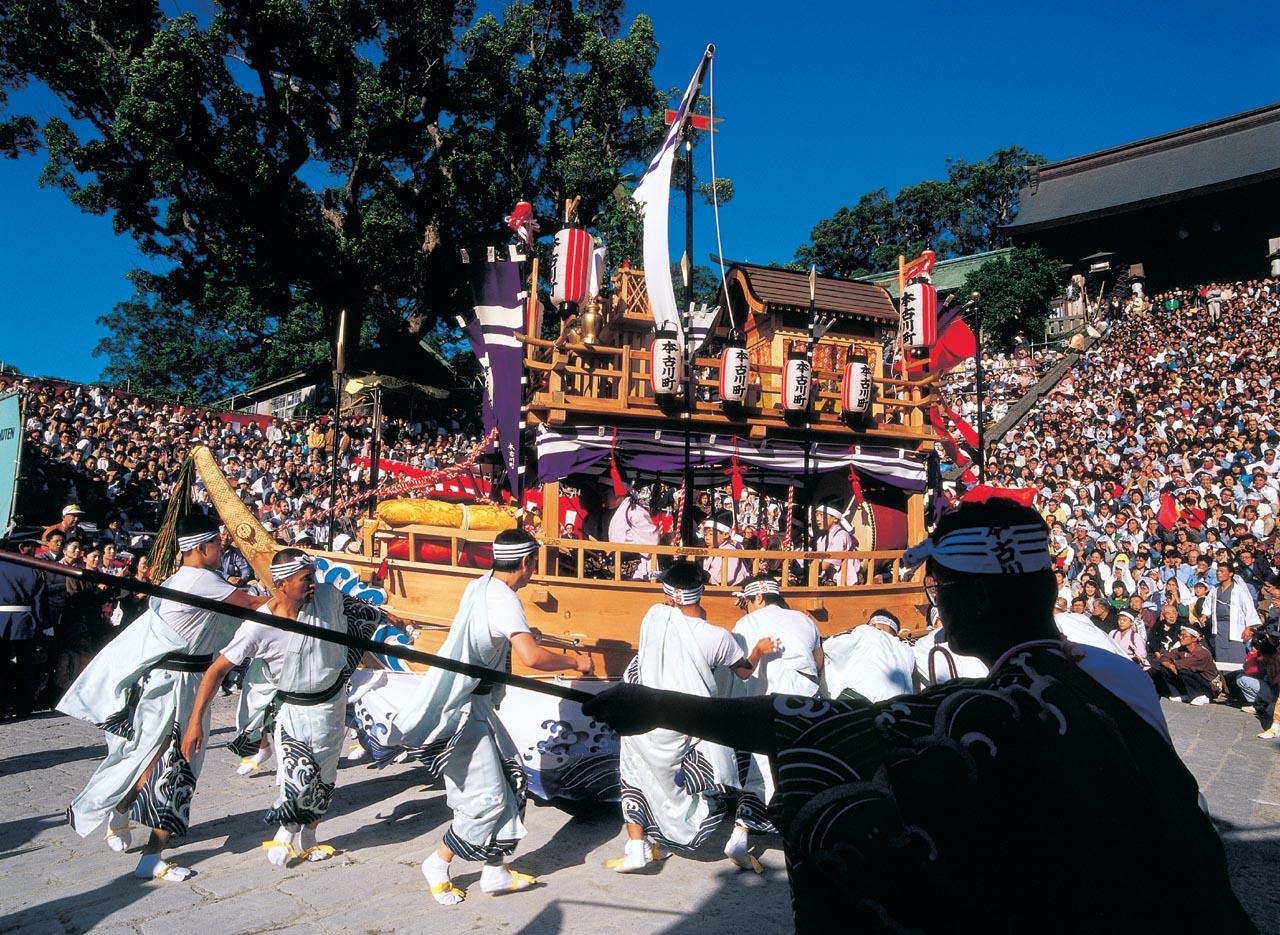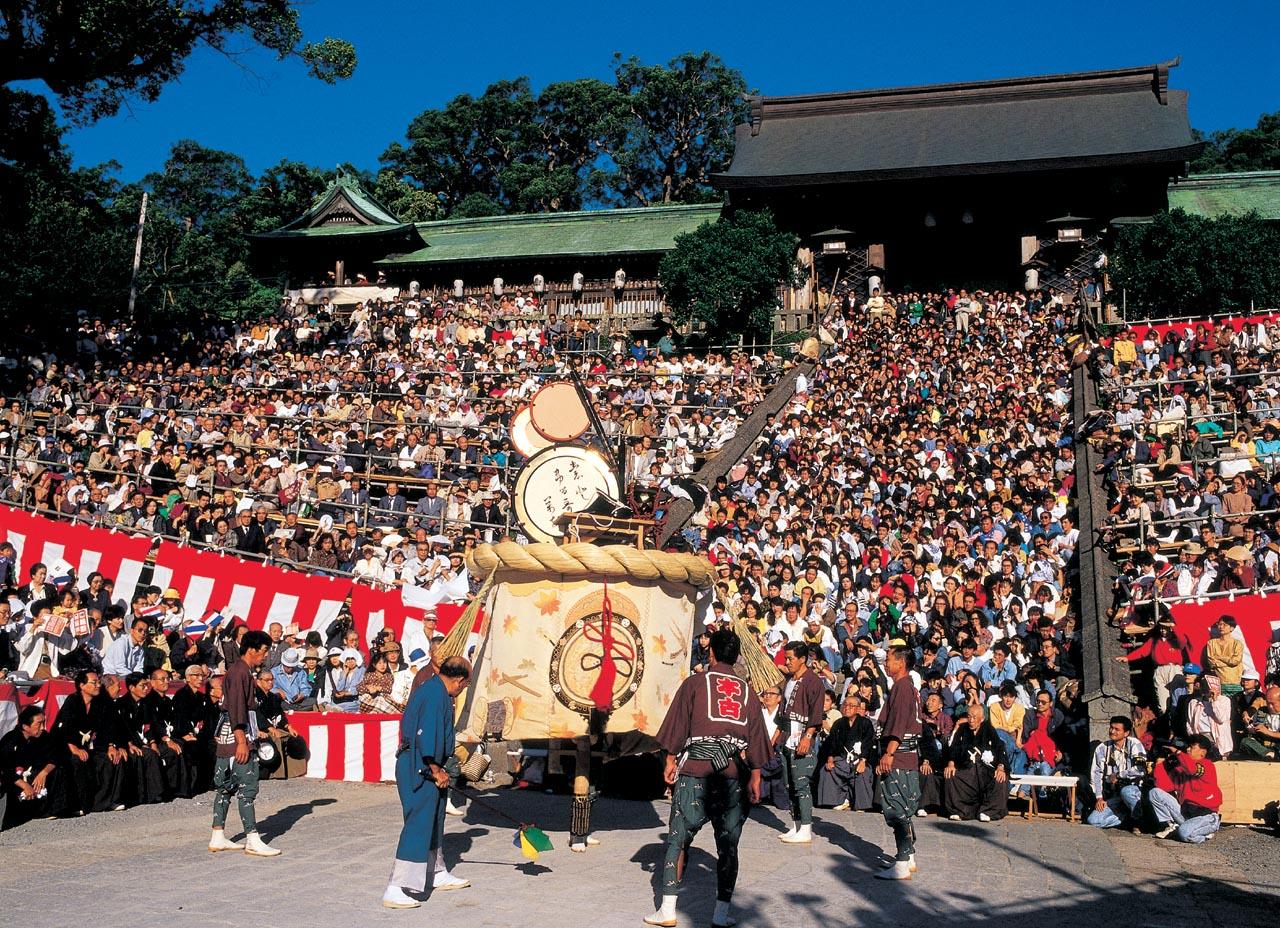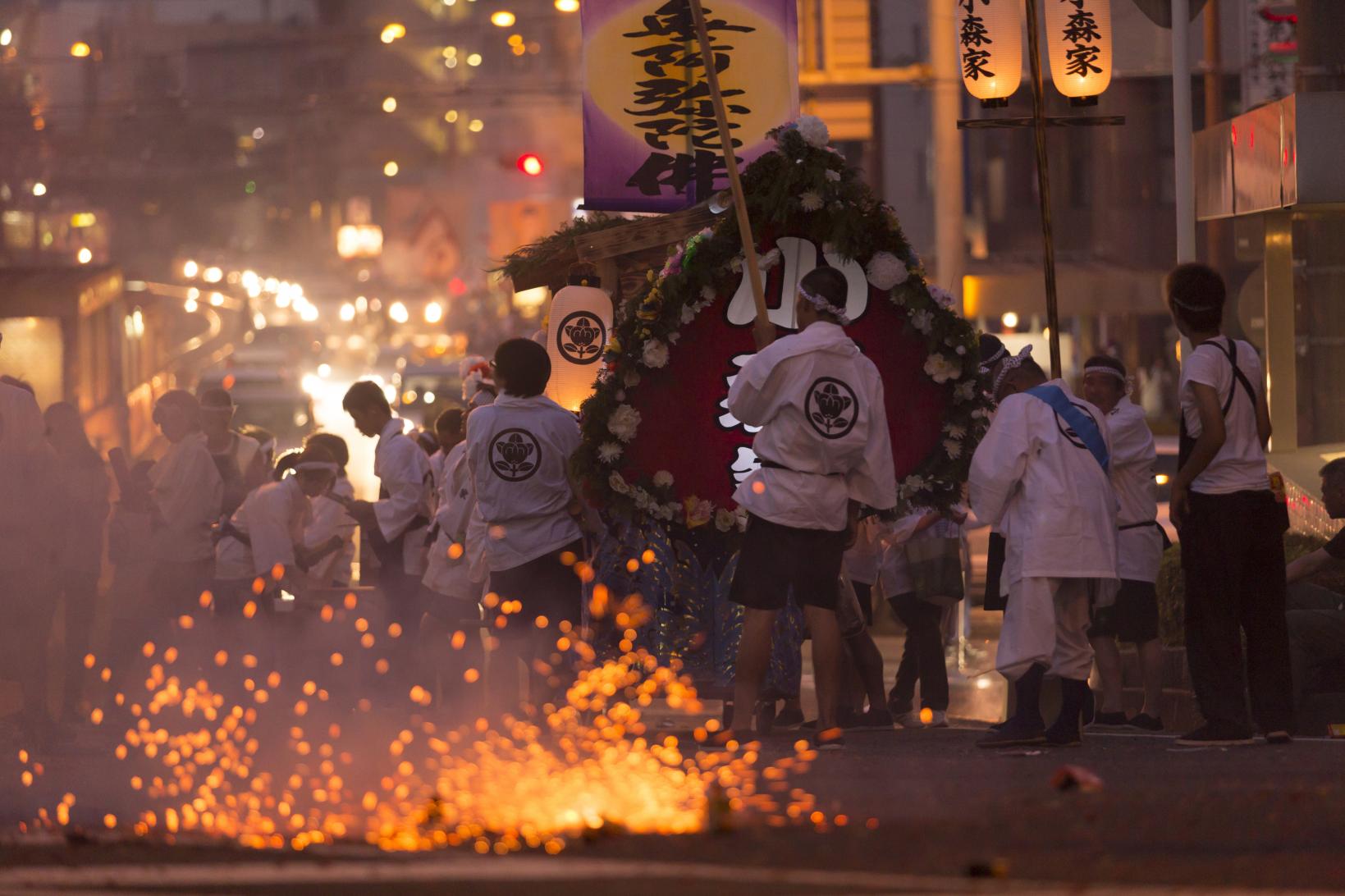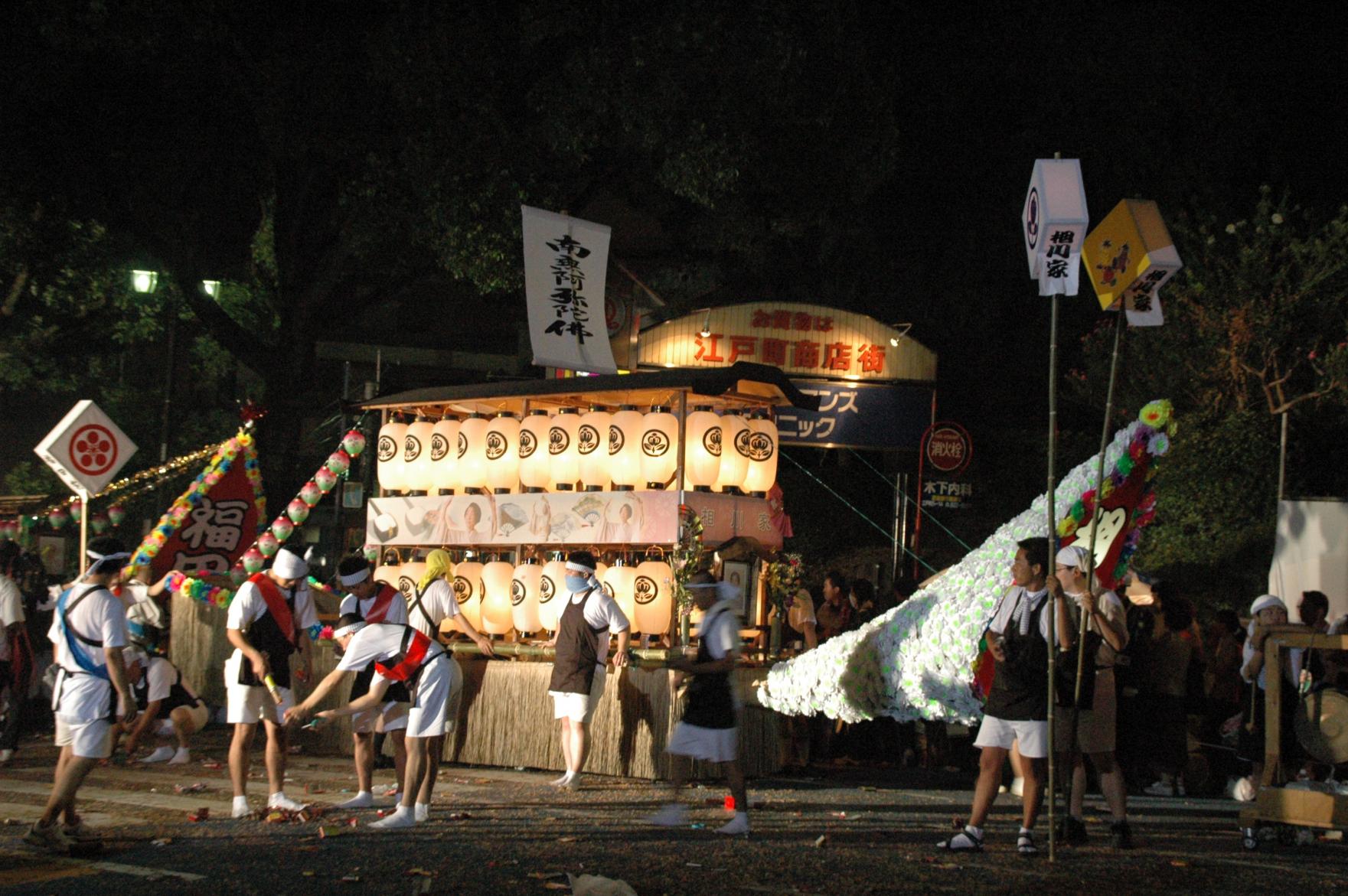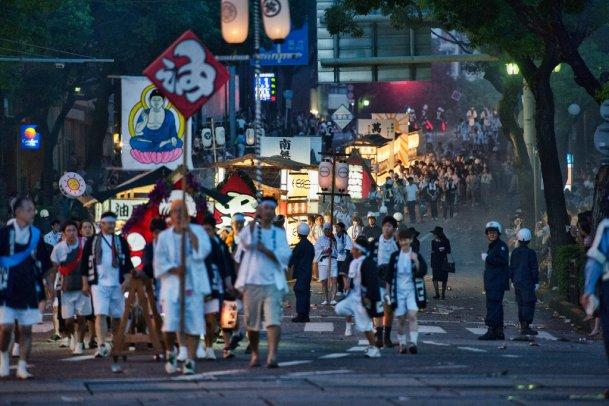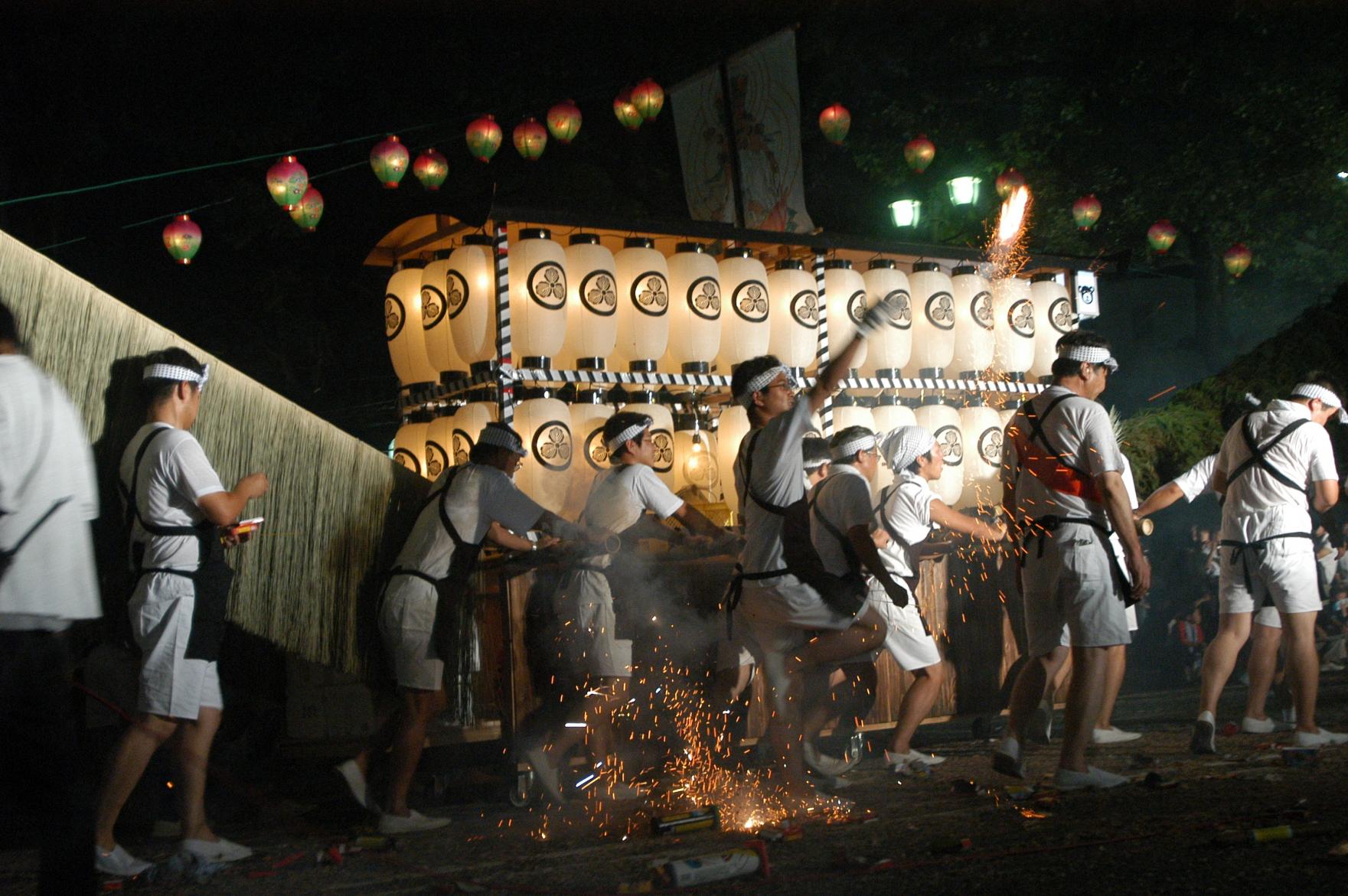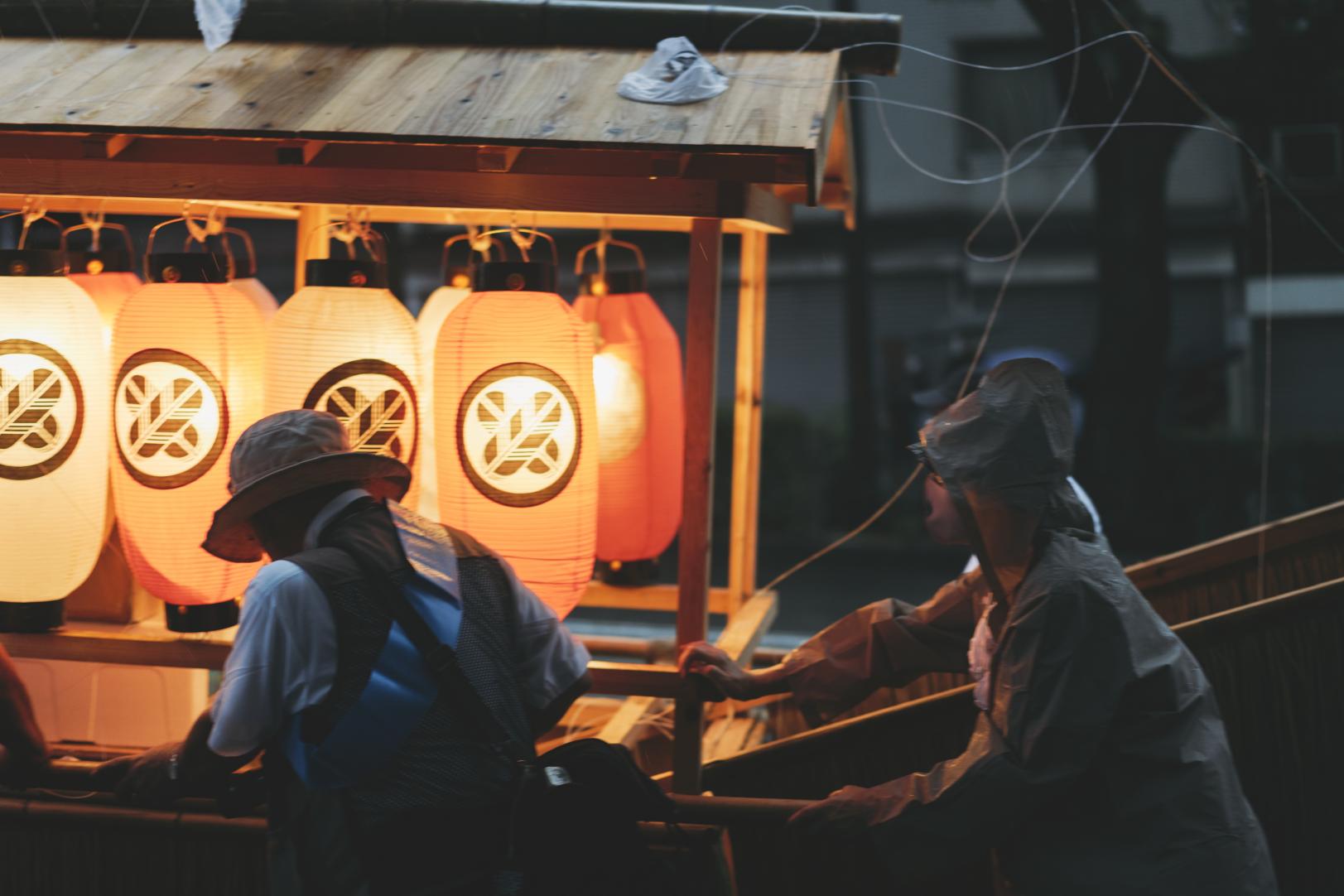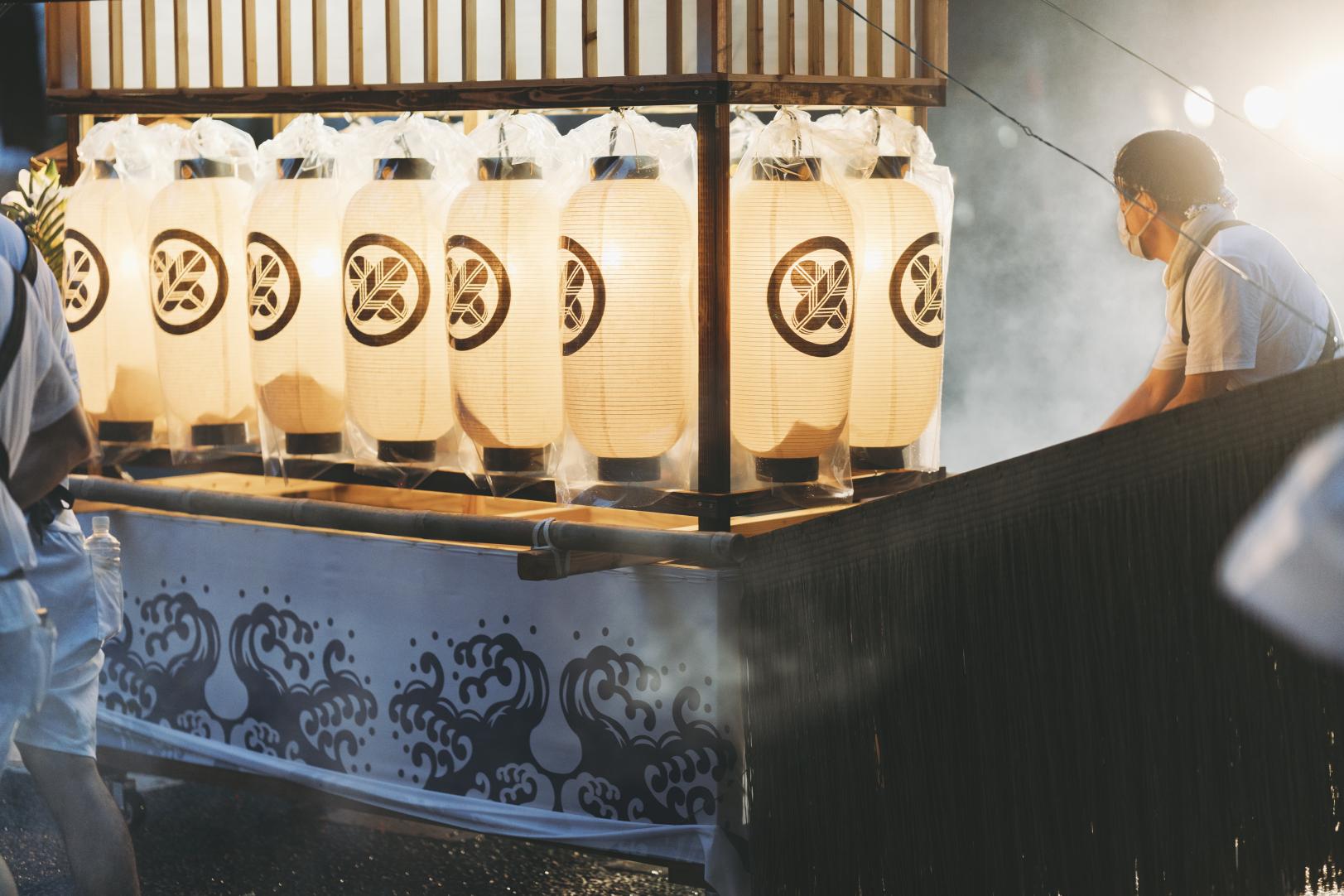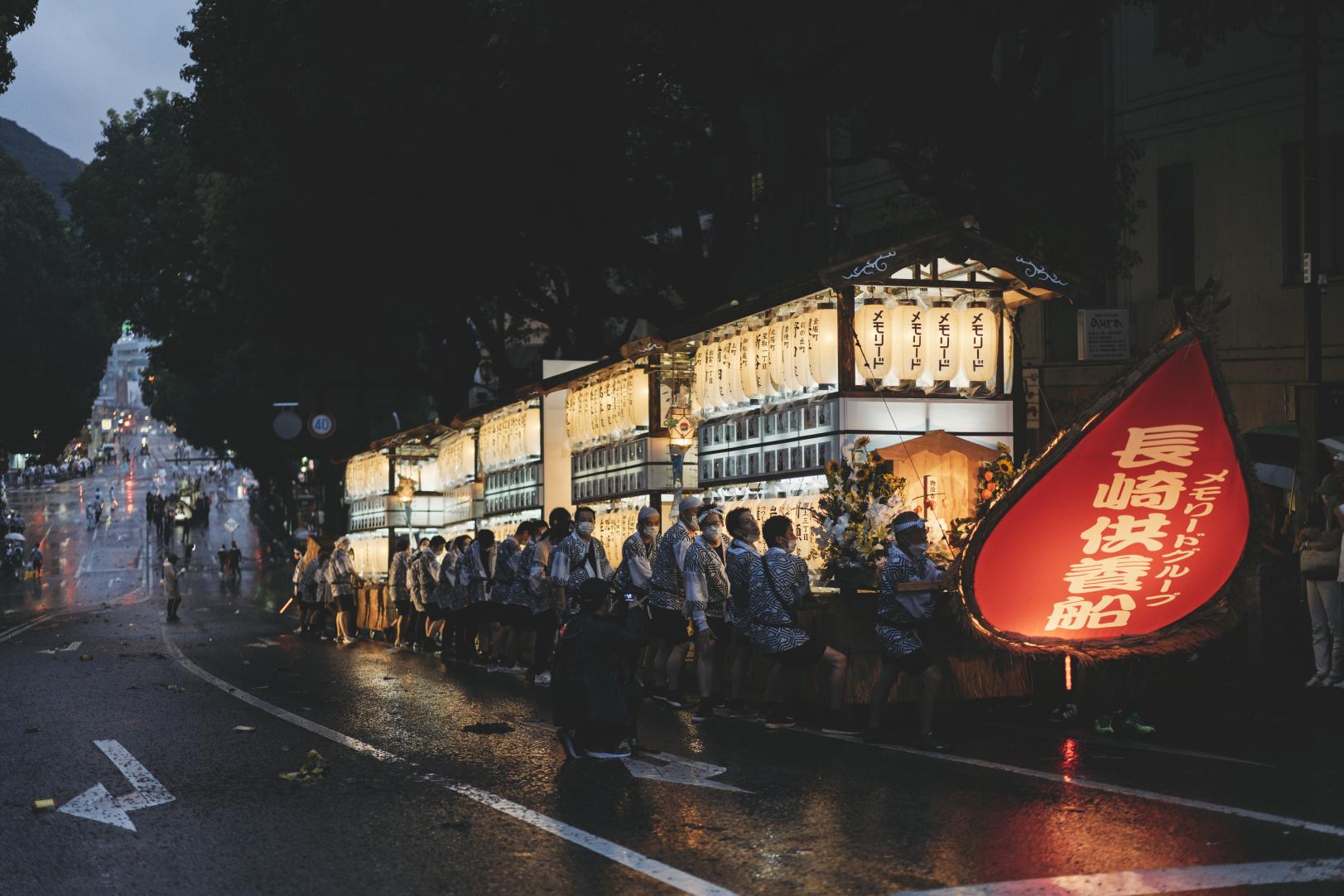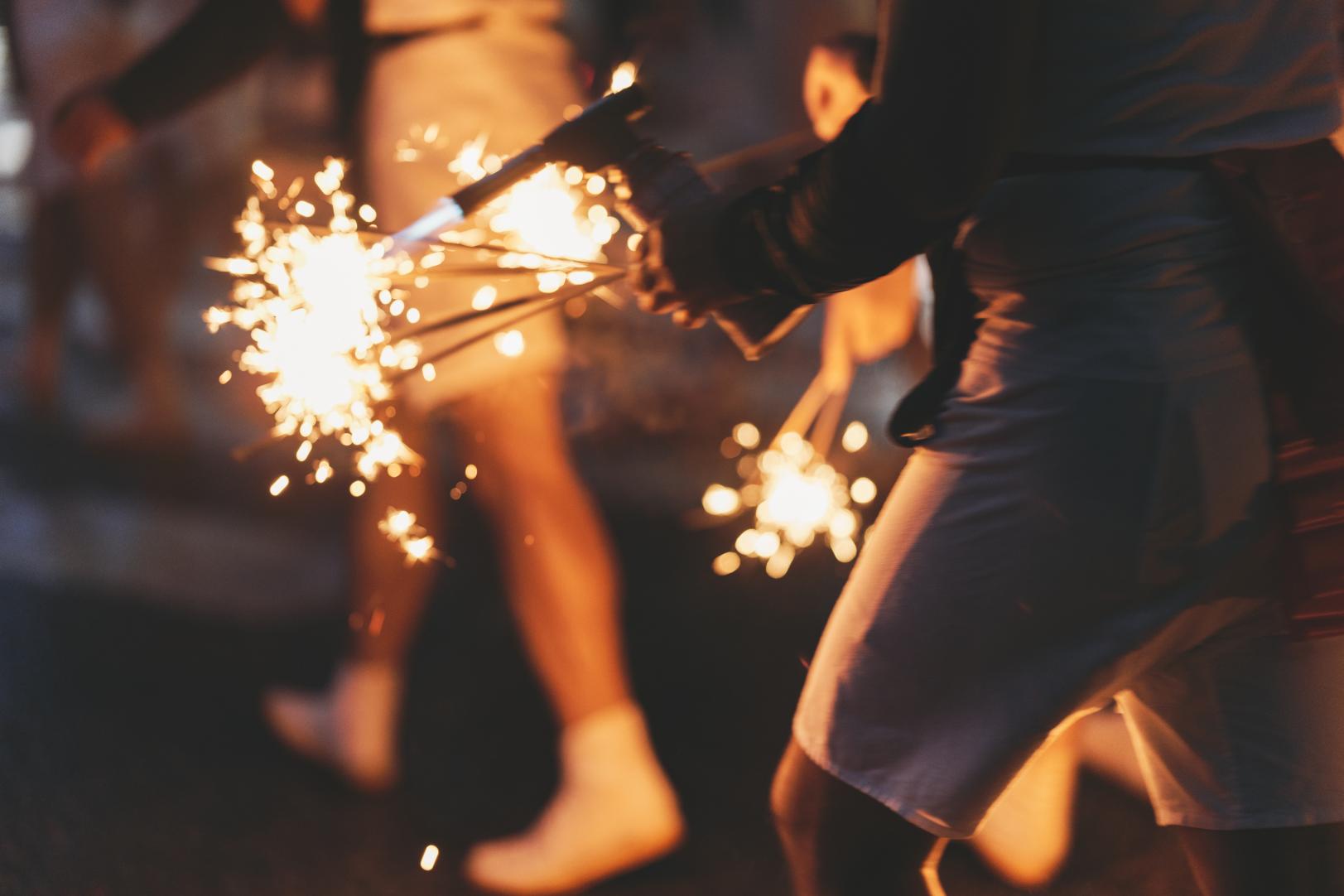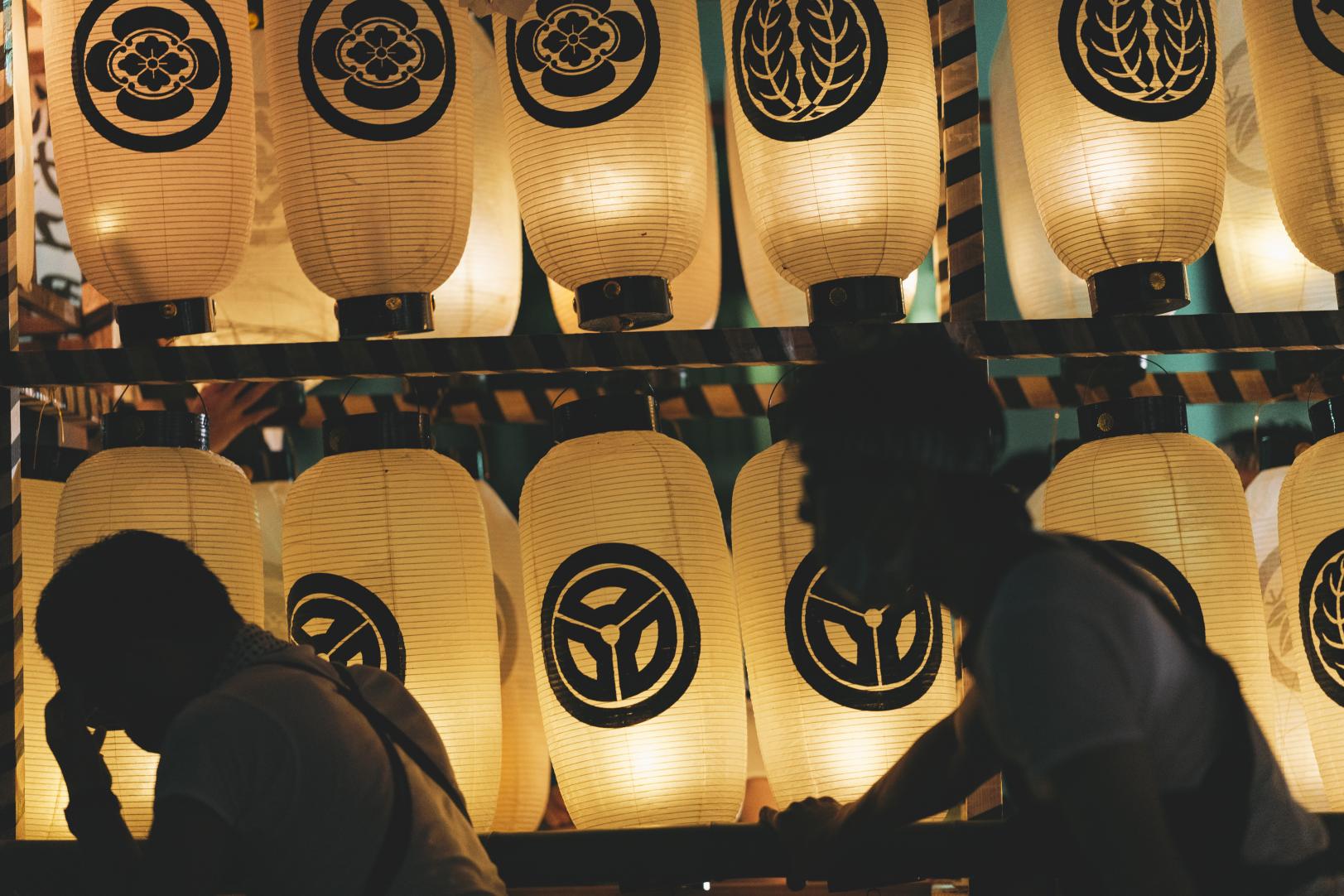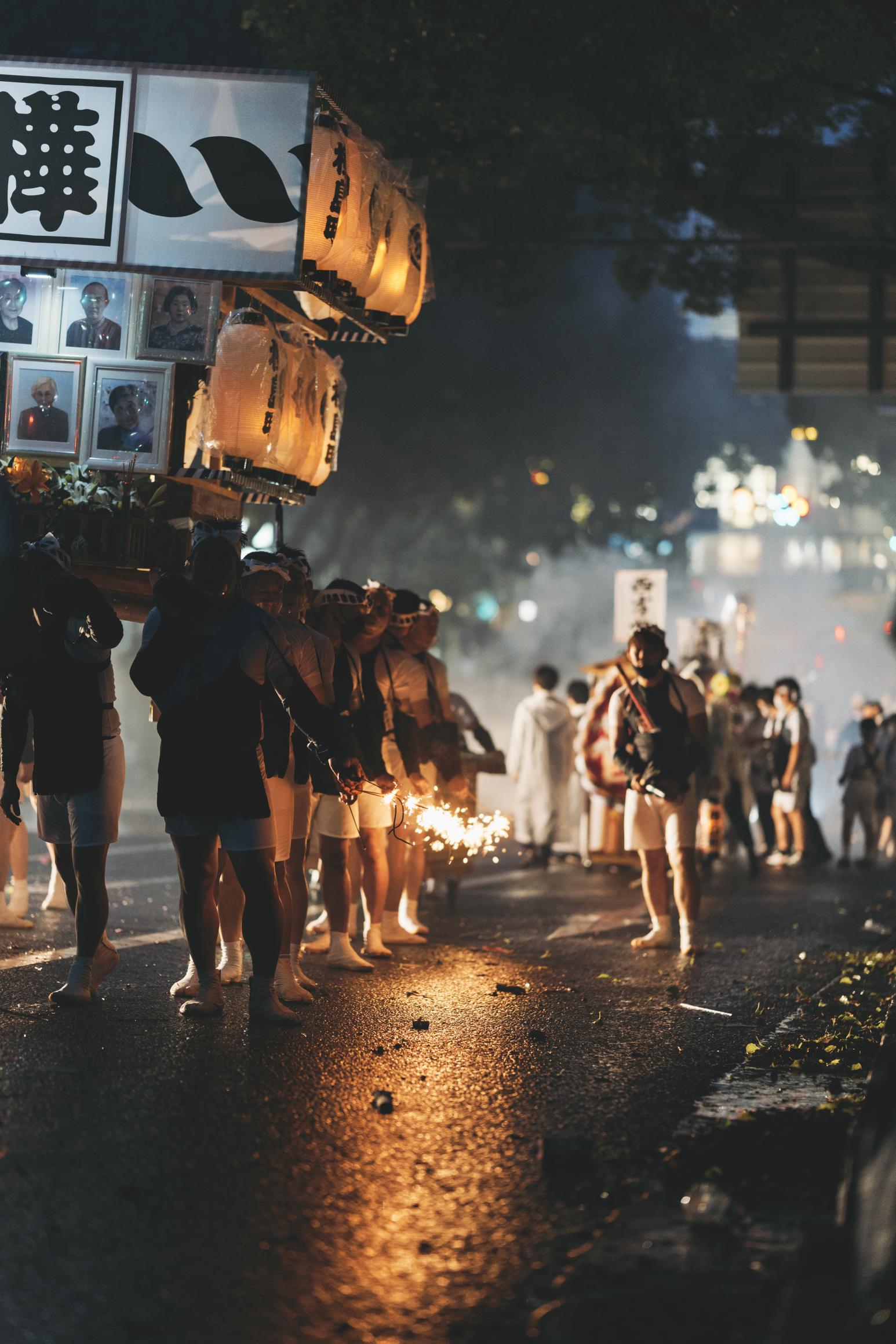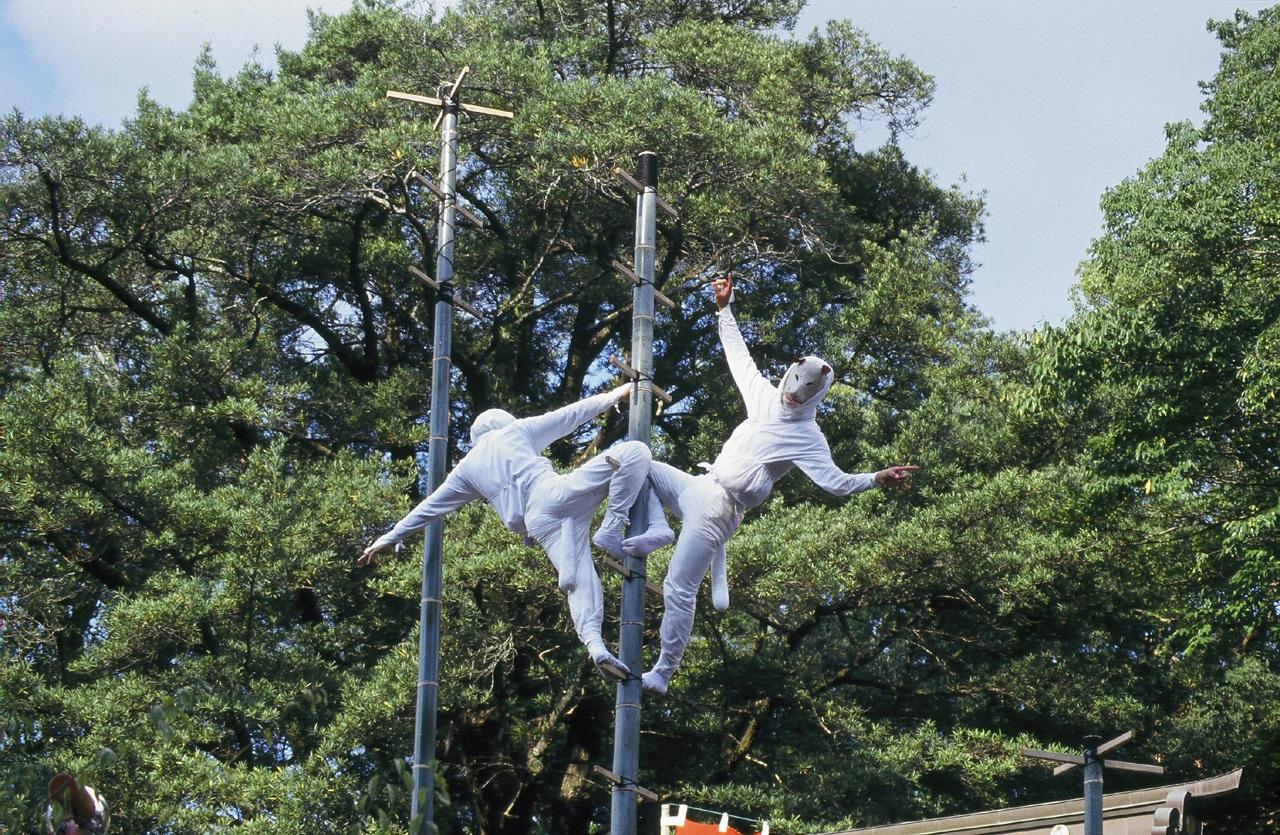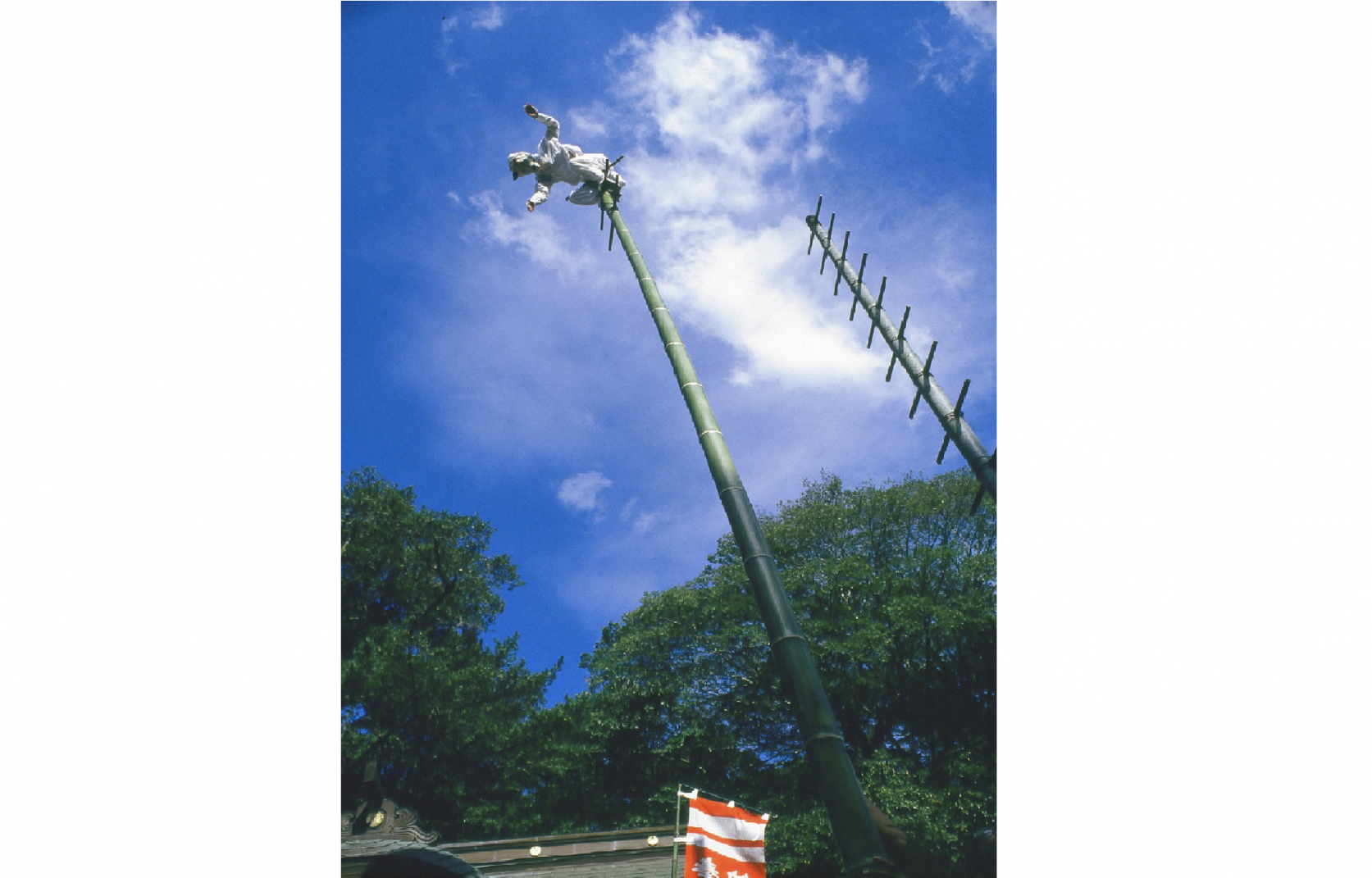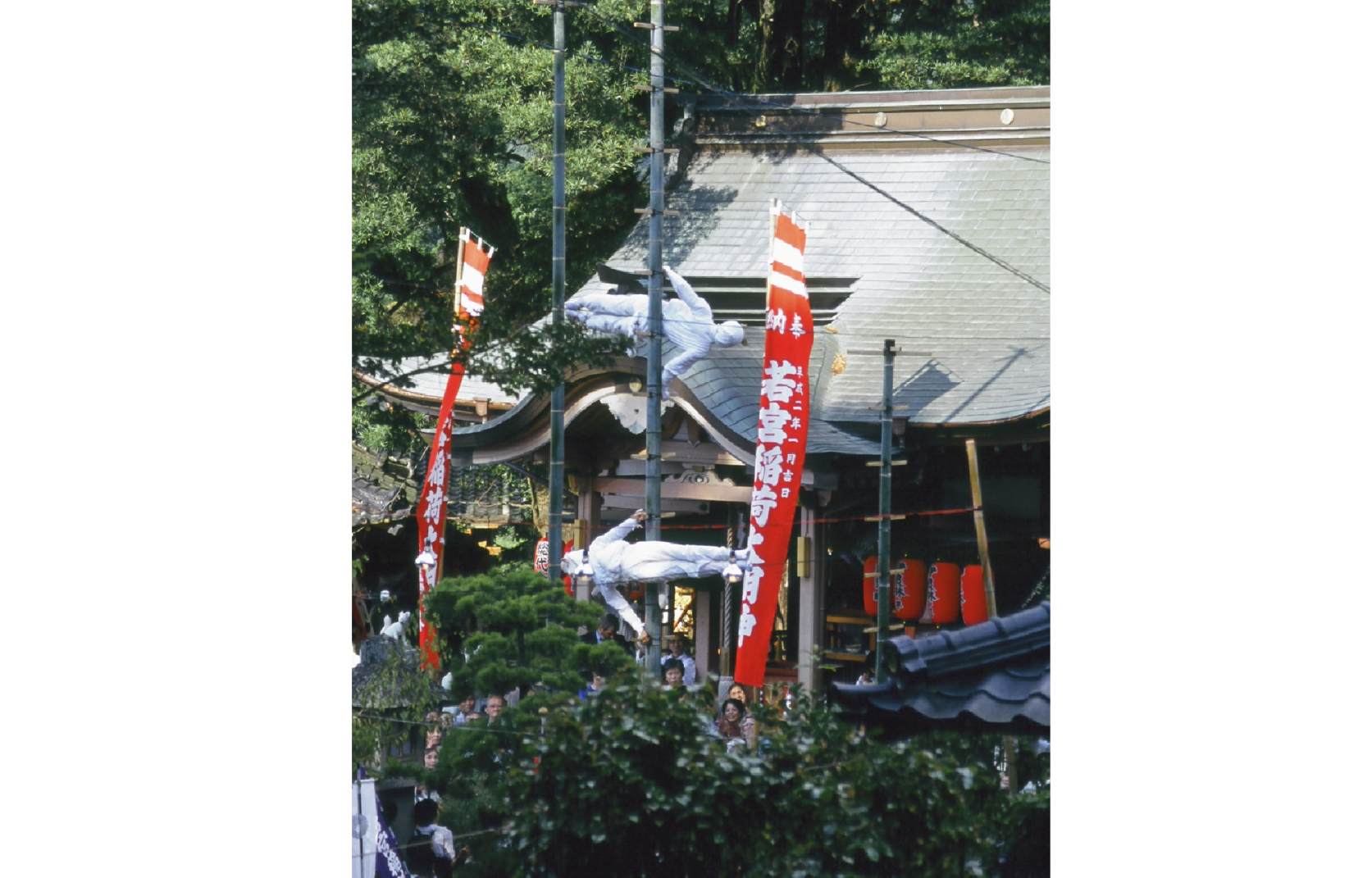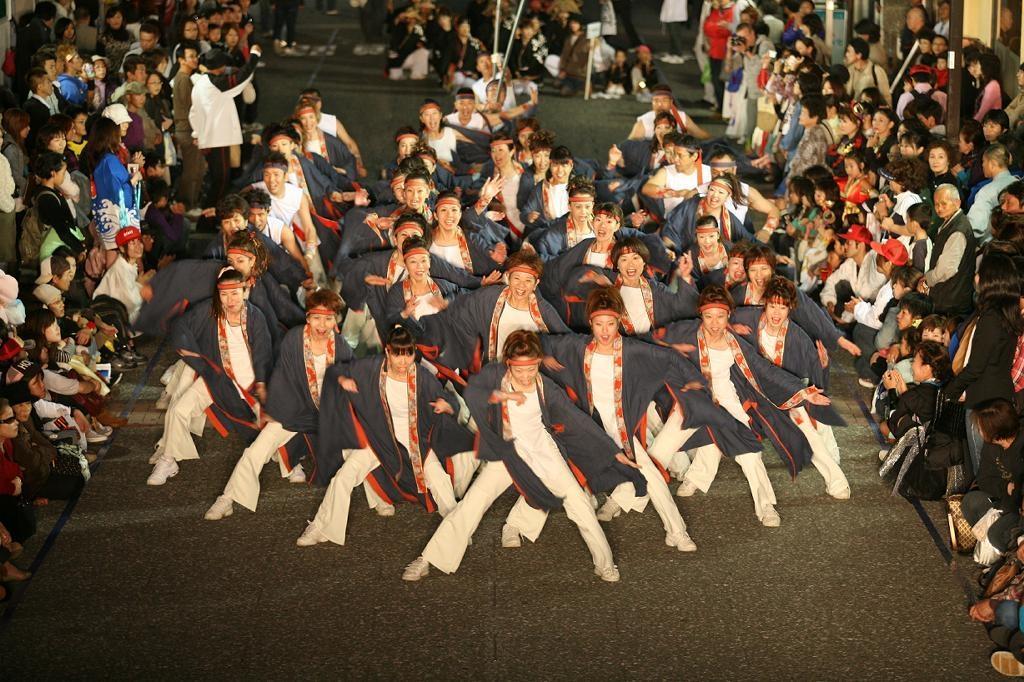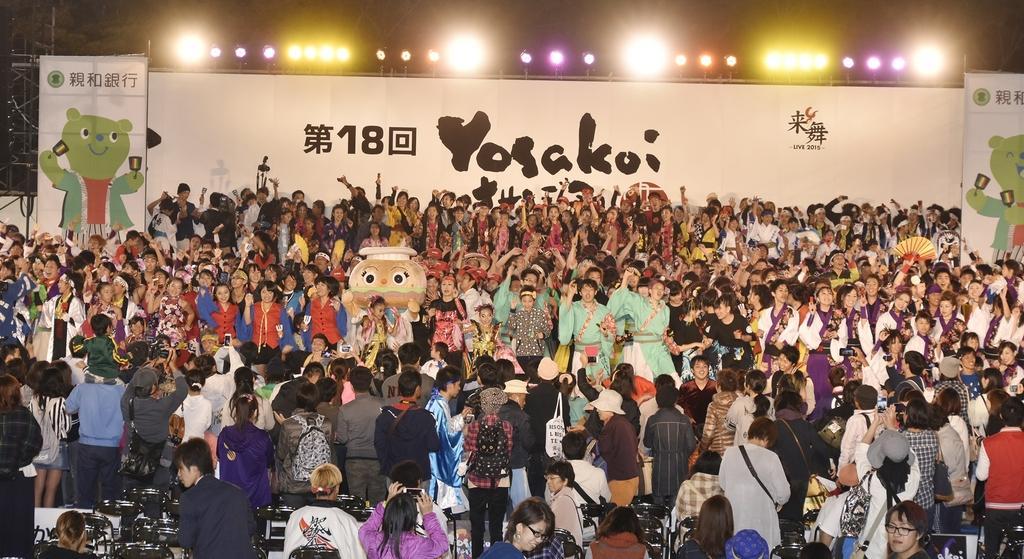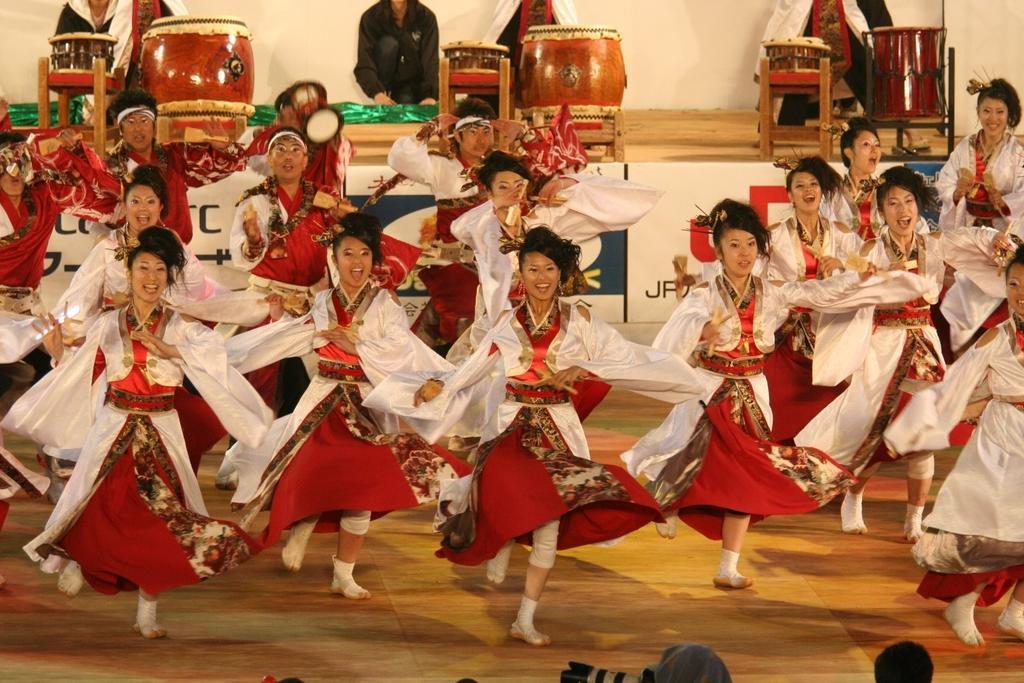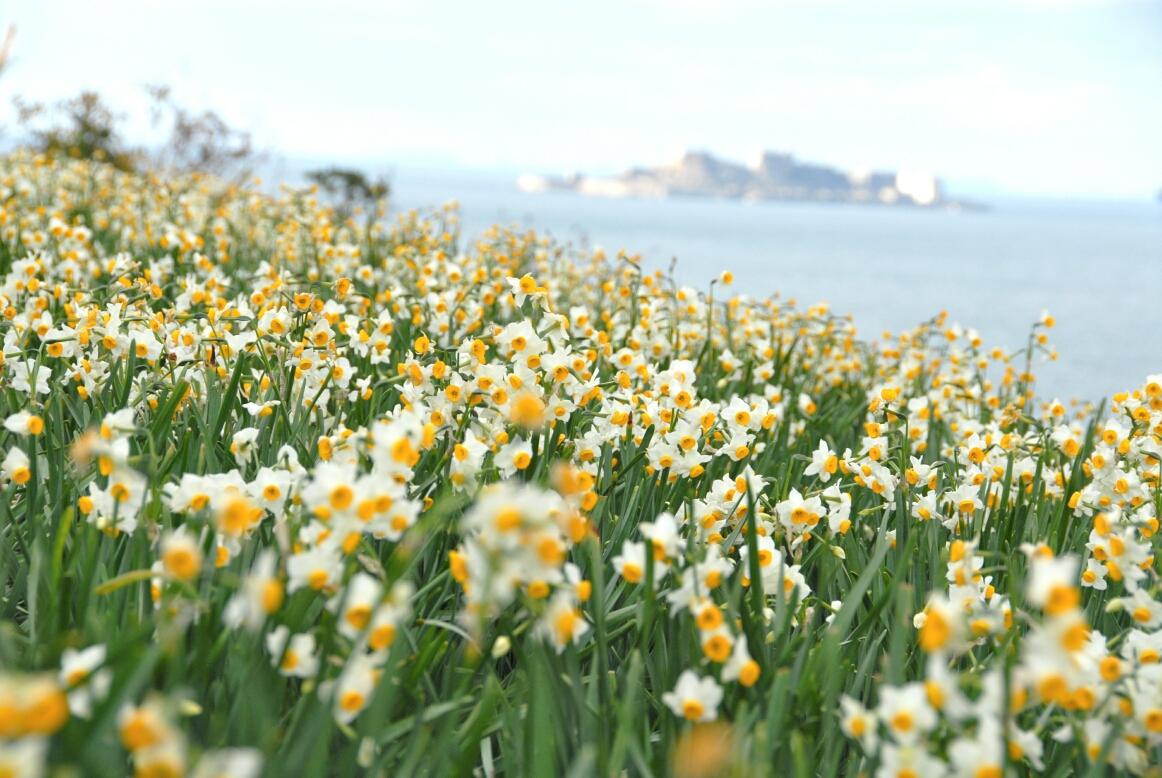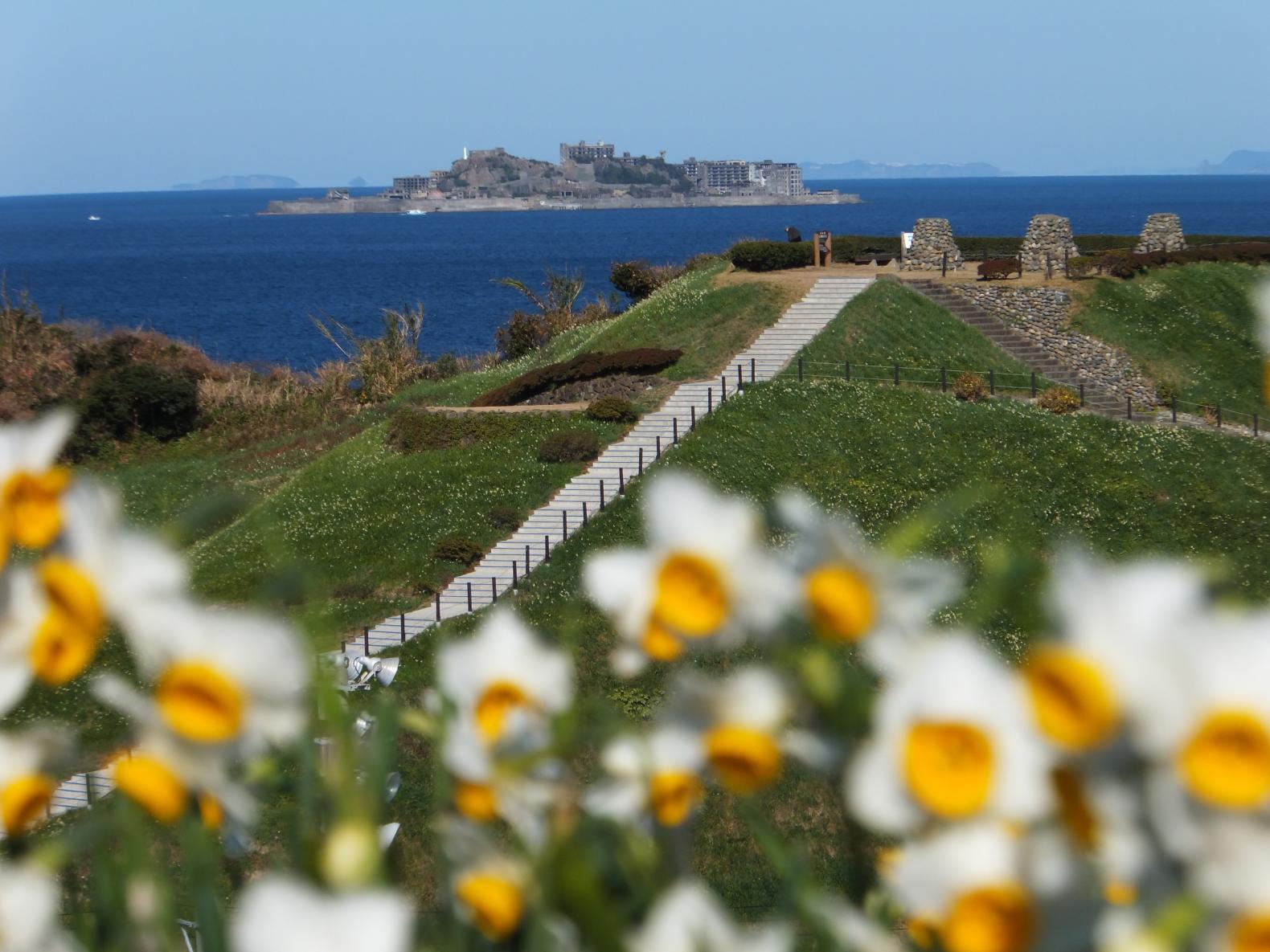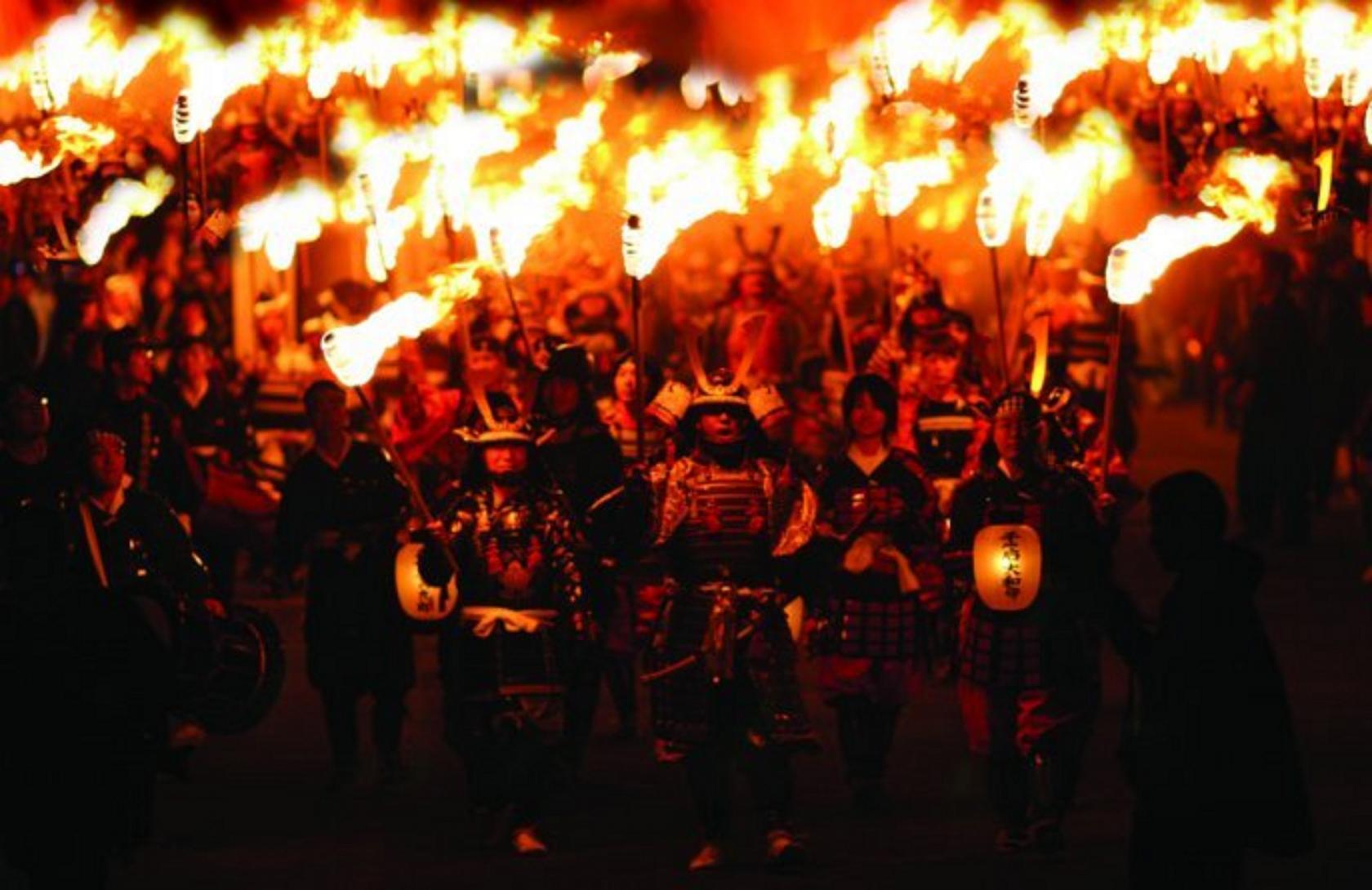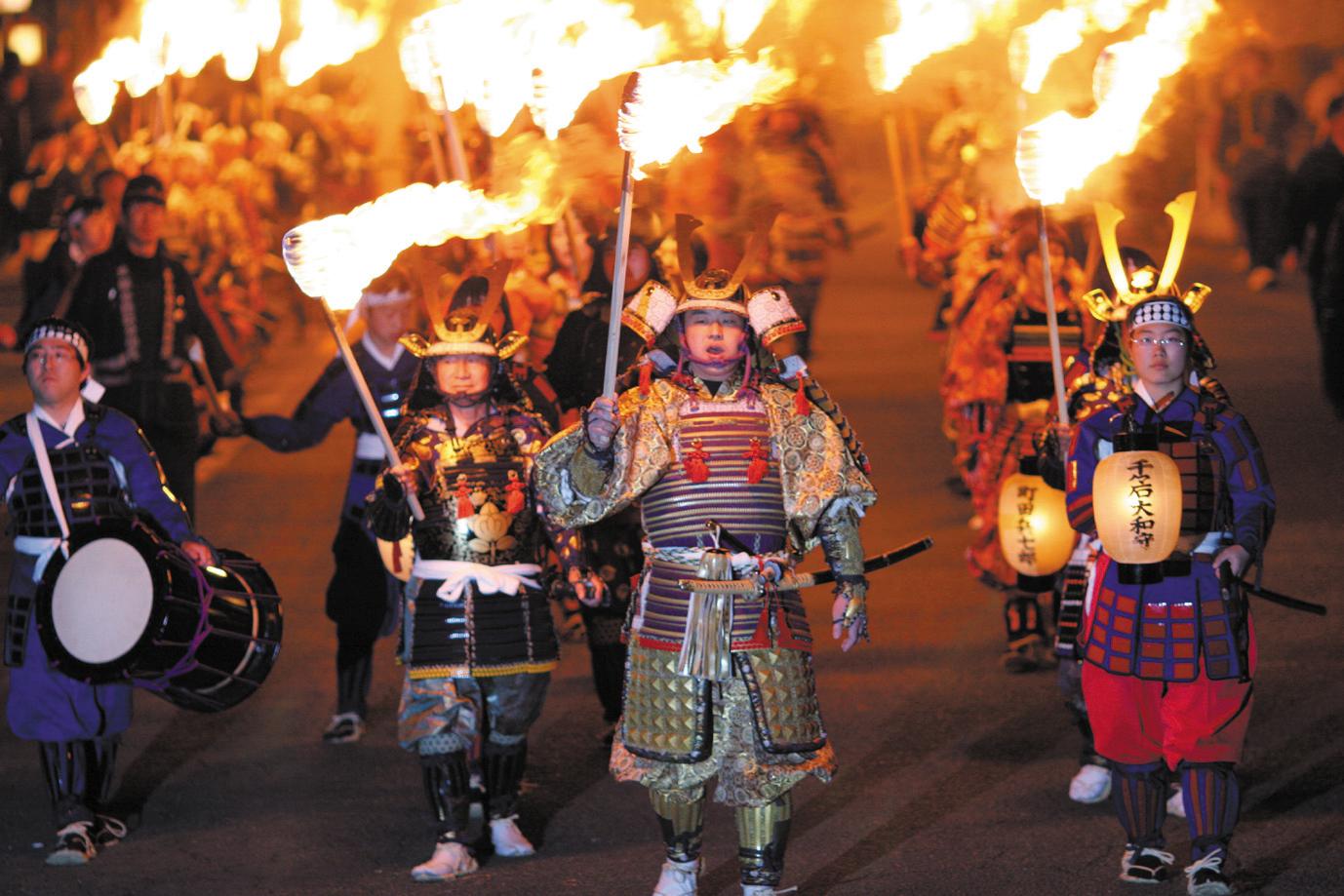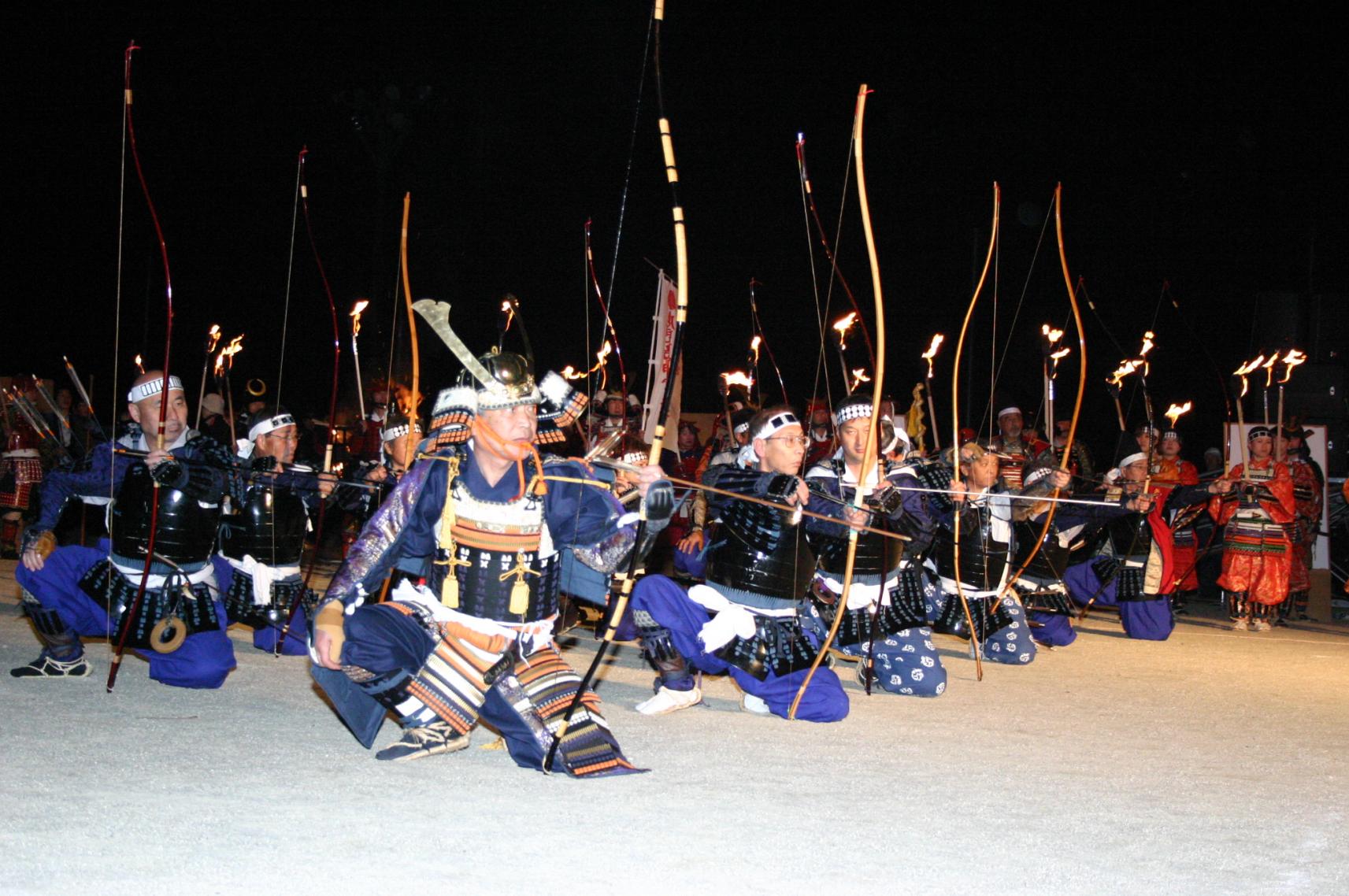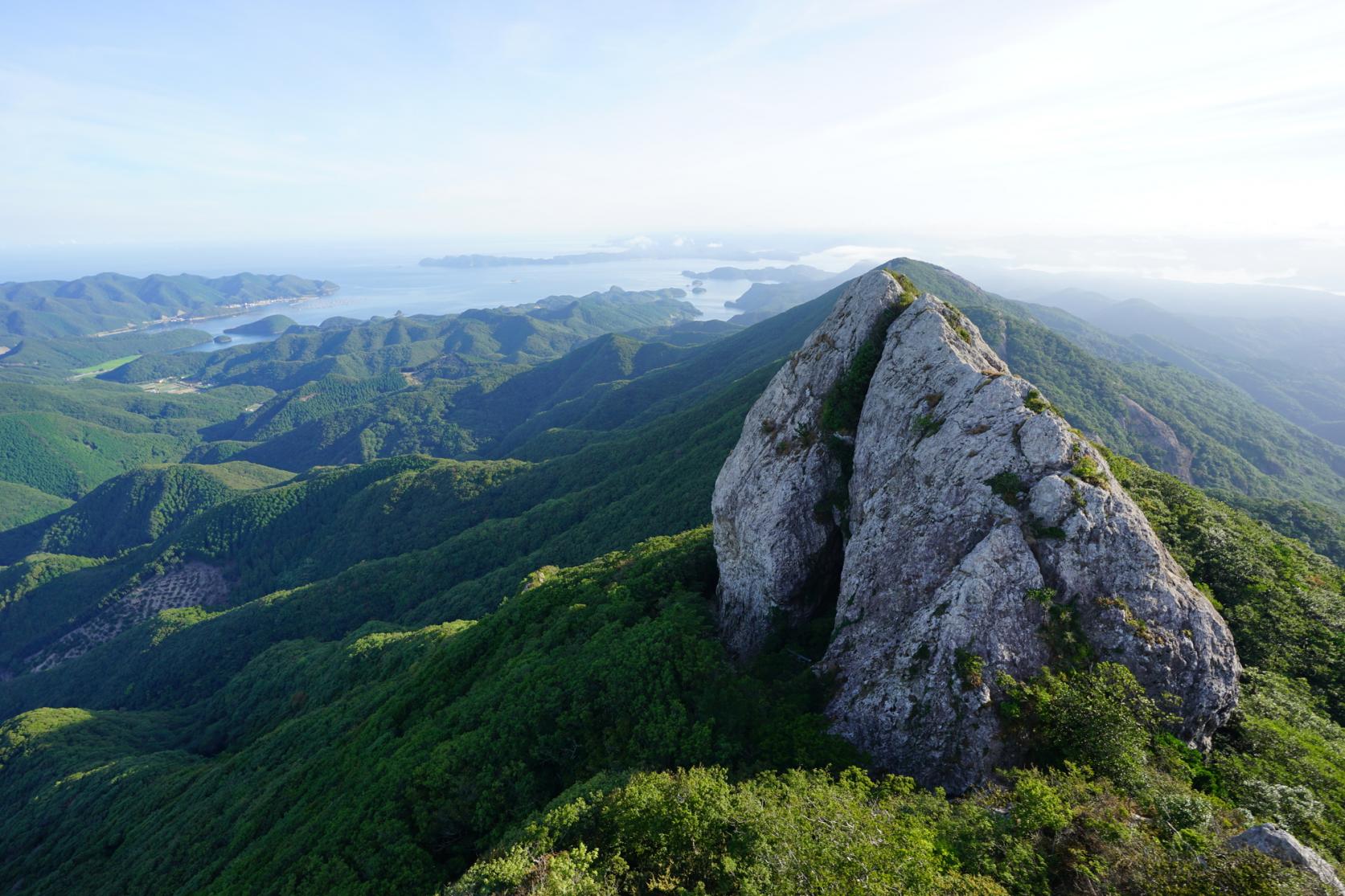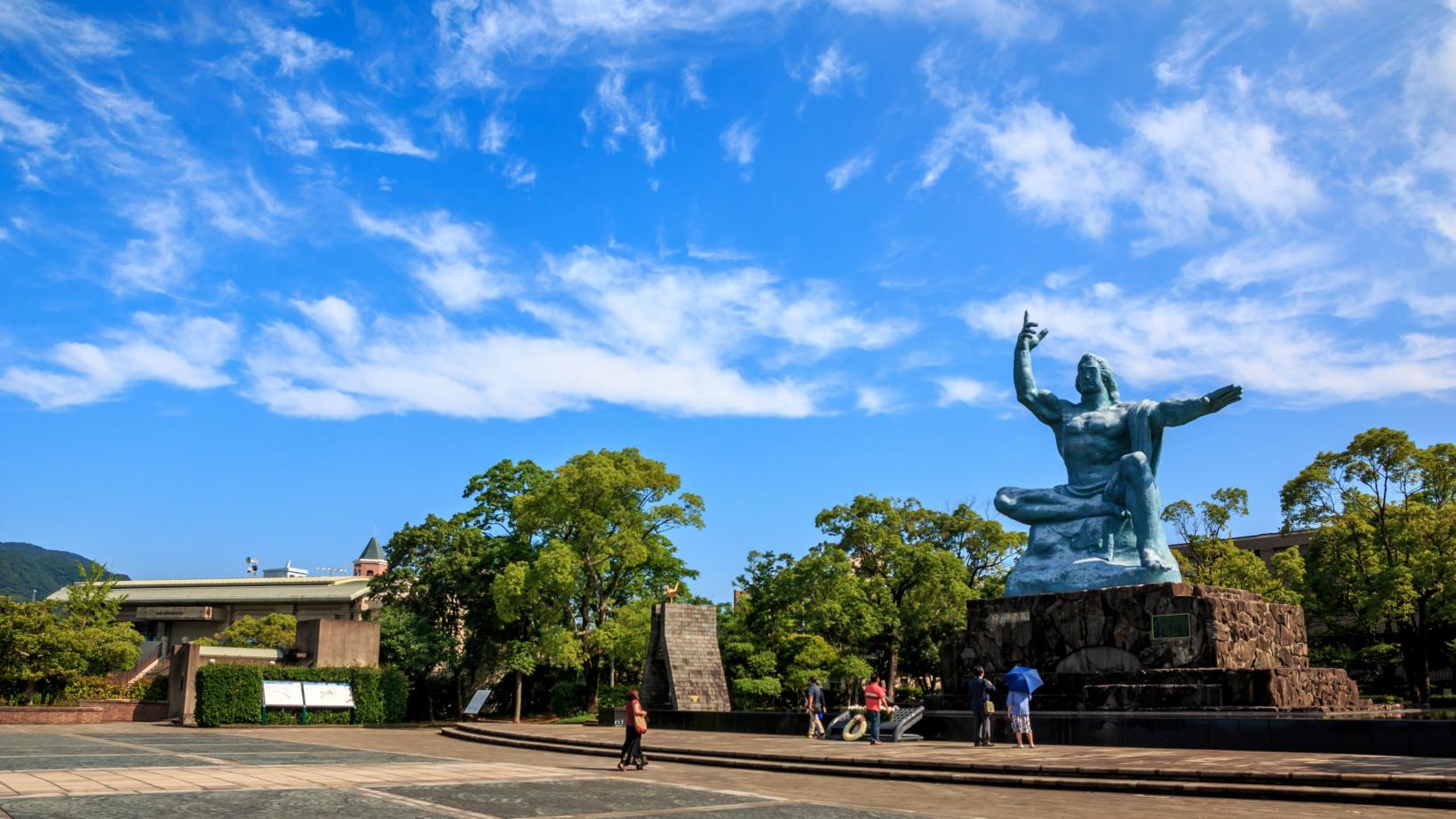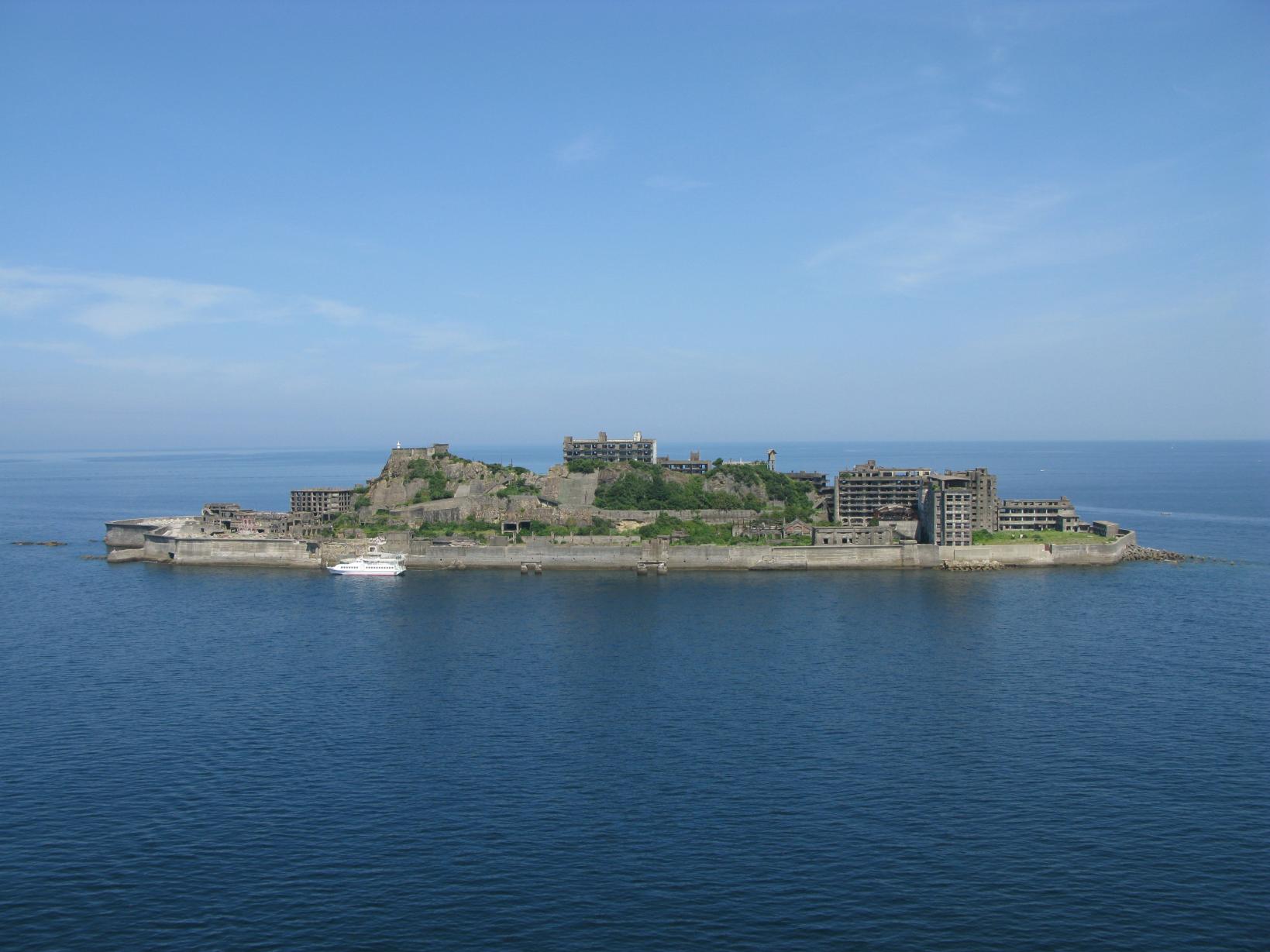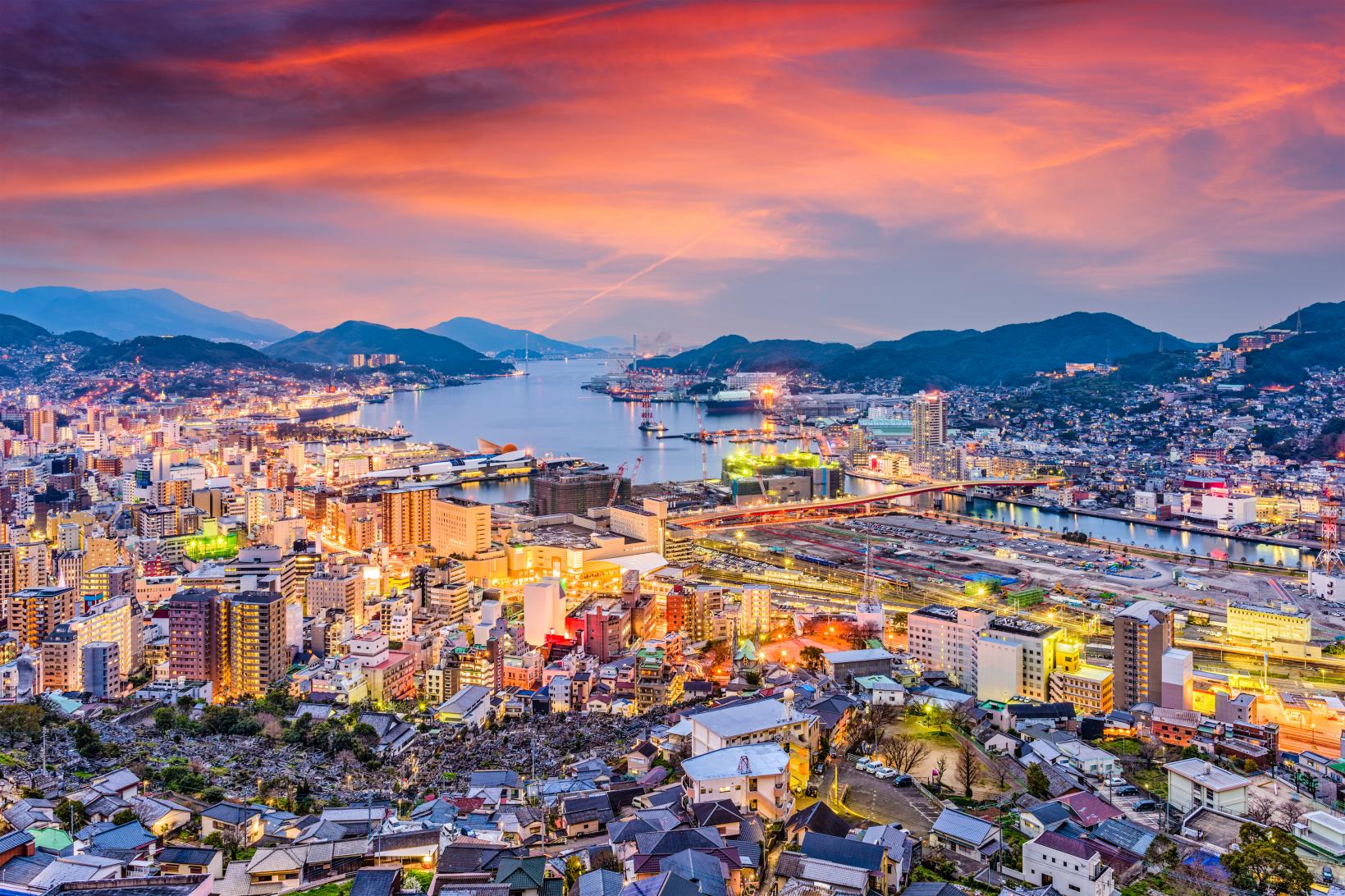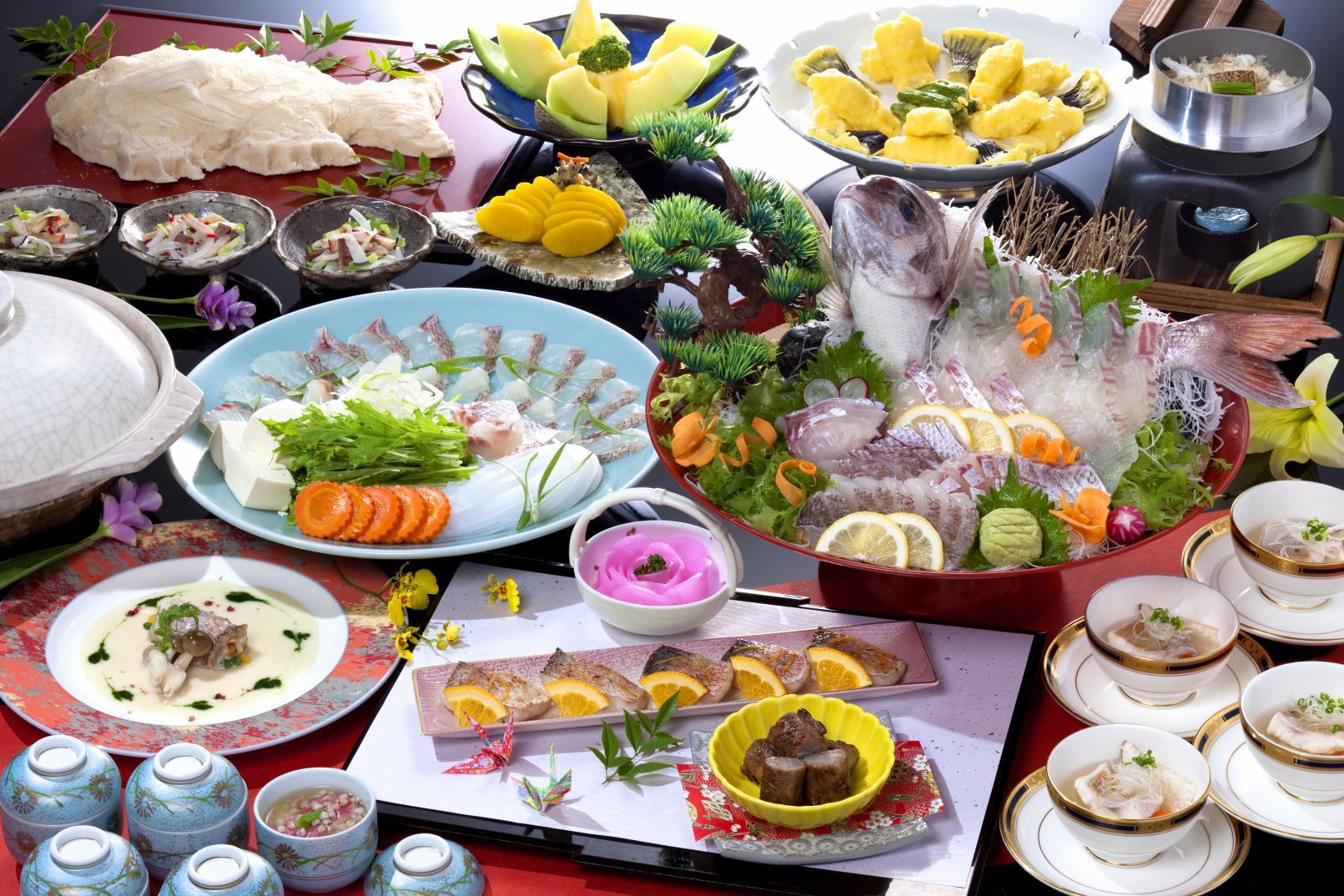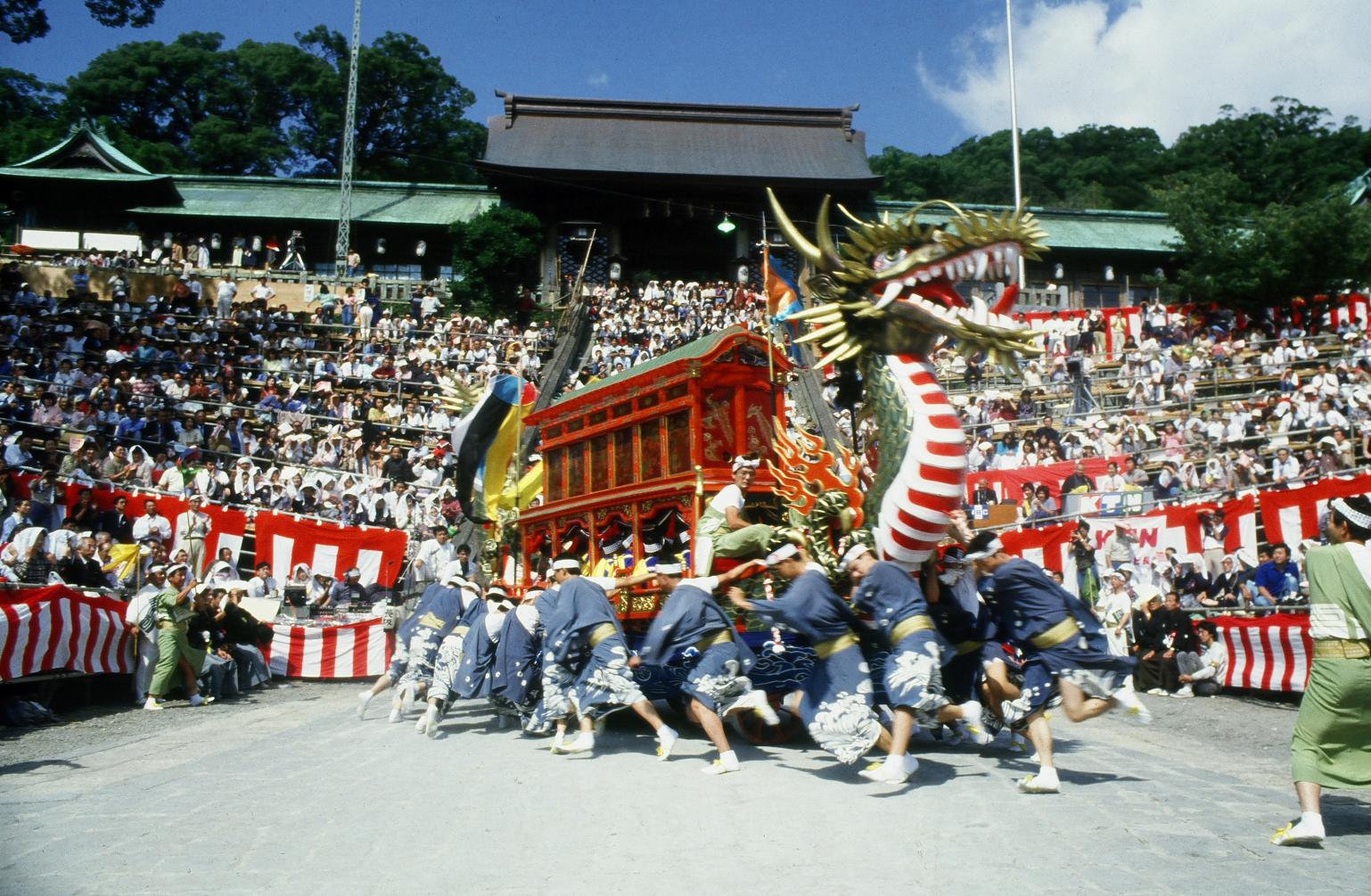
Major Festivals in Nagasaki Prefecture
Many of the festivals in Nagasaki have been influenced by foreign cultures and are quite unique. Here are seven particularly distinctive festivals.
Nagasaki Lantern Festival
The Chinese New Year (Lunar New Year) was originally an event celebrated by the people of Shinchi Chinatown, but it became famous nationwide as a winter tradition in Nagasaki after its scale was expanded in 1994. Held over the course of 15 days, approximately 15,000 vibrantly colored and decorated lanterns, as well as bright lantern objects of various sizes are displayed throughout the city. Performances such as Jaodori (Dragon Dance) and Lion Dances are also held to be reminiscent of the authentic Chinese New Year.
Nagasaki Kunchi / Okunchi
Nagasaki was the primary port in Japan for foreign trade during the Edo Period, as such, many cultural influences from that period can still be seen today. One of the best examples is the Nagasaki Kunchi Festival. This festival has 380 years of tradition, and it is characterized by the unique and dynamic performances (dedicatory dances) that retain influences from Portugal, the Netherlands, China, Vietnam, and etc. The influence of traditional Japanese festivals from Kyoto and Sakai, such as Kasaboko (Unbrella-Shaped Decoration) and Hikimono (Floats), can also be seen.
The Nagasaki Kunchi Festival is held annually from October 7th to October 9th. Each year, 7 of the 59 performing districts called "odori-cho" will perform their region's special dance or performance; therefore, you will only see the same performance once every 8 years! This is an autumn festival that is unique only to Nagasaki, and it attracts many tourists from around the country each year.
The Spirit Boat Procession / Shoronagashi
An event called "Obon" is held during the summer in Japan to worship the spirits of ancestors, but in various parts of Nagasaki Prefecture, such as Nagasaki City, the bereaved families of people who passed away before Obon build handmade ships to mourn their spirit, and a "Spirit Boat Procession" is held, carrying the ships to the coast.
The family's crest, name, and town name are written on the bow of the ship, and the decorations on the ship reflect the hobbies of the deceased. The Spirit Boat Procession is held on August 15th of every year, and as evening falls, the sounds of bells, shouts, and firecrackers reverberate from all over. the city. The Spirit Boat Procession continues until late at night.
Takengei (Bamboo Pole Performance)
Acrobats dressed as male and female foxes perform dynamic aerial arts on a pair of 10-meter tall bamboo poles. These performances represent the figure of a fox (the messenger of the shrine) playing in the bamboo thickets behind Wakamiya Shrine, and their acrobatic arts unfold amidst the reverberations of strange and mysterious musical accompaniment. Takengei is held on October 14th and 15th of each year at Wakamiya Shrine located in Nagasaki City.
Yosakoi Sasebo Festival
The Yosakoi Festival originated in Kochi Prefecture, but it became popular throughout Japan because the performances incorporate Japanese dances with modern music. arranging The Sasebo Yosakoi Festival is the largest in Kyushu, with approximately 180 teams at 14 venues within Sasebo City. Held every year on a weekend in late October, this is a grand event with performers of all ages performing various highly energetic dances while using noisemakers in time with the music.
Nomozaki Daffodil Festival
The Nomozaki Daffodil Festival is held in January at the Nomozaki Suisen-no-sato Park, located 40 minutes away by car from Nagasaki City. Ten million daffodils bloom during the month of January, and the gentle scent from the flowers can be smelled as you approach the park. The scenery, where endless fields of daffodils against the backdrop of UNESCO World Heritage Site "Gunkanjima" (aka Battleship Island) in the far distance, attracts many photography enthusiasts each year.
Kanoukaen
Kanoukaen is a fire festival where a total of 200 warriors, each holding a torch in one hand, parade through Tachibana Park while the cherry blossoms are in full bloom. The lord of the castle fought to protect the local villagers when enemy troops attacked in the 16th century, and even though he lost the battle, Kankoukaen conveys the castle lord's wish for peace.
The procession of warriors, illuminated by the red burning torches, is shockingly powerful. As the magnificent historical tale unfolds on a spring night, brave shouts of "Iyasaka! (Prosperity and Happiness!)" and the firing of real matchlock weapons are performances not to be missed!
※Kanoukaen is held every year at the end of March.
NEXT



